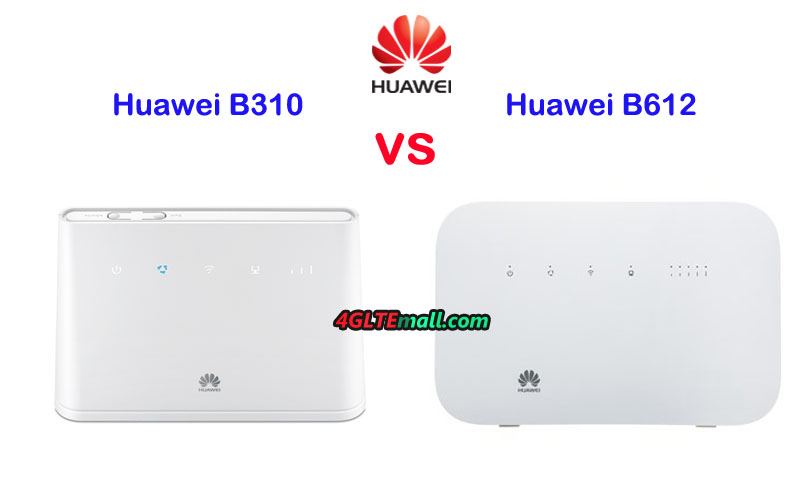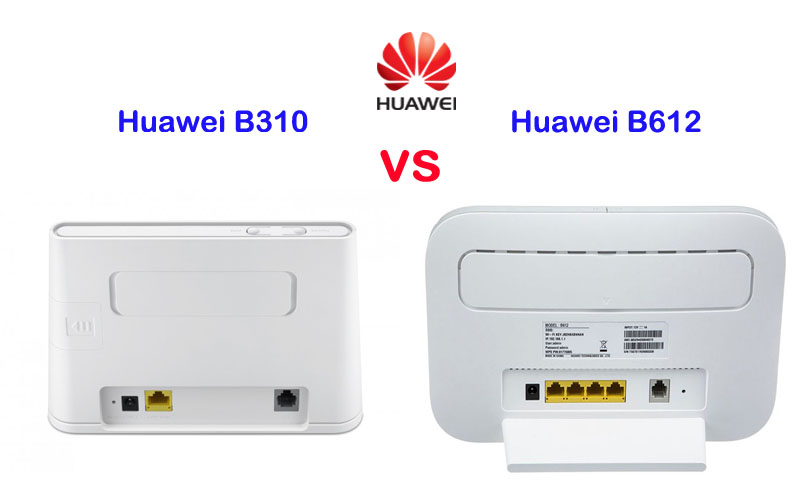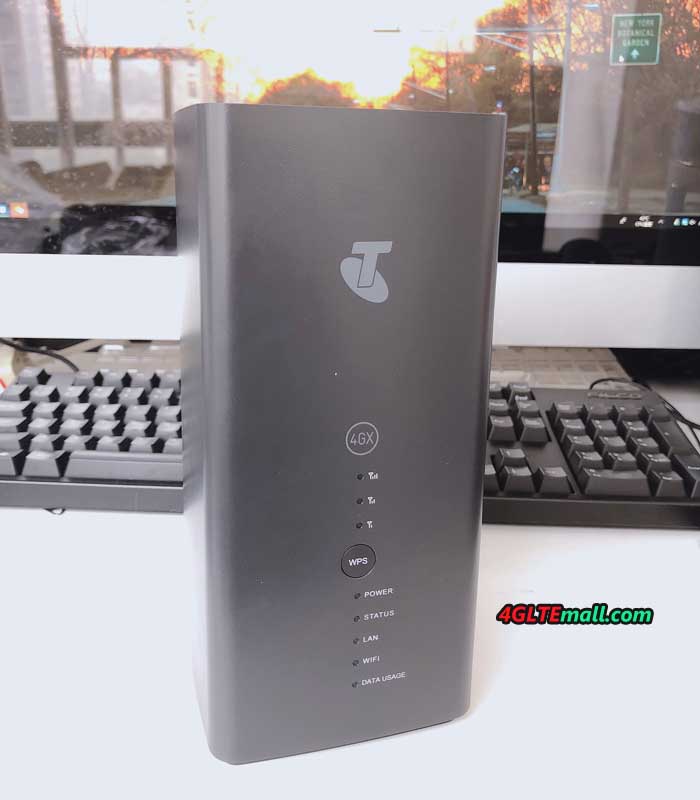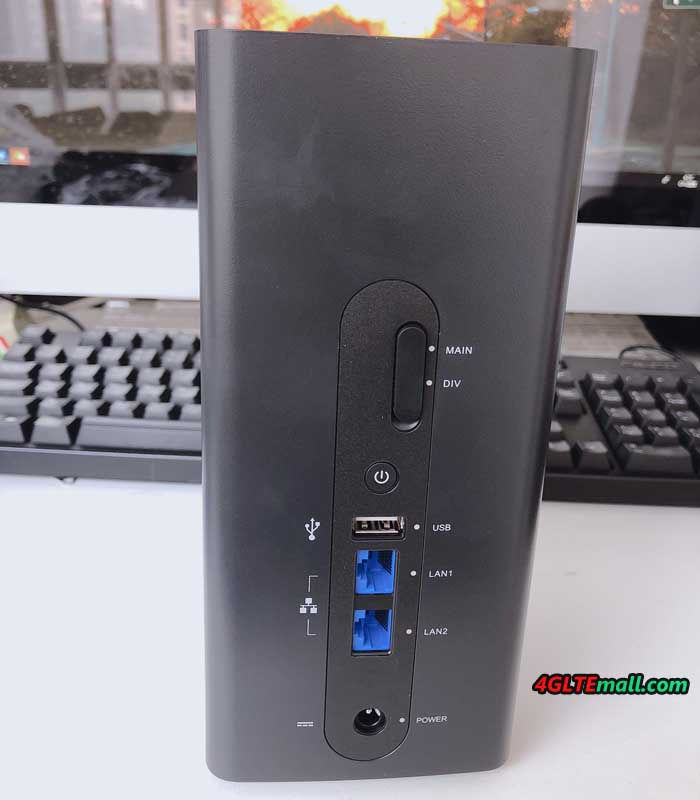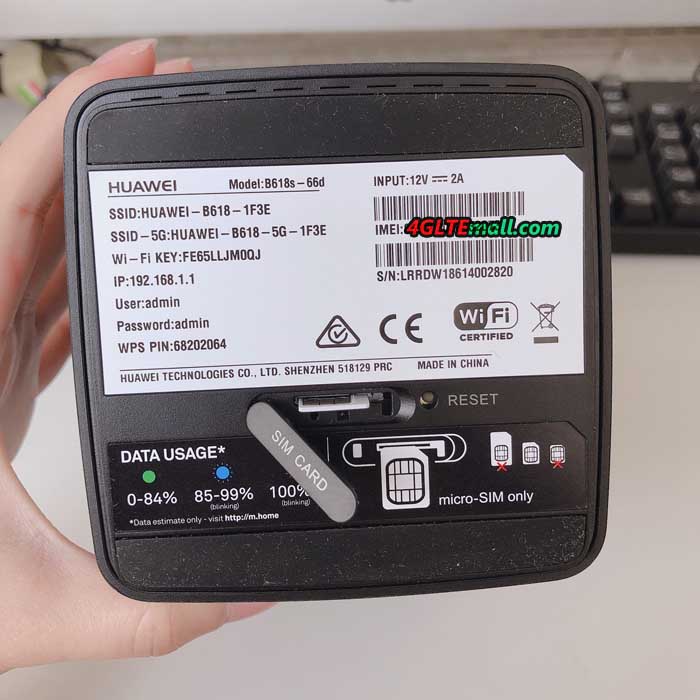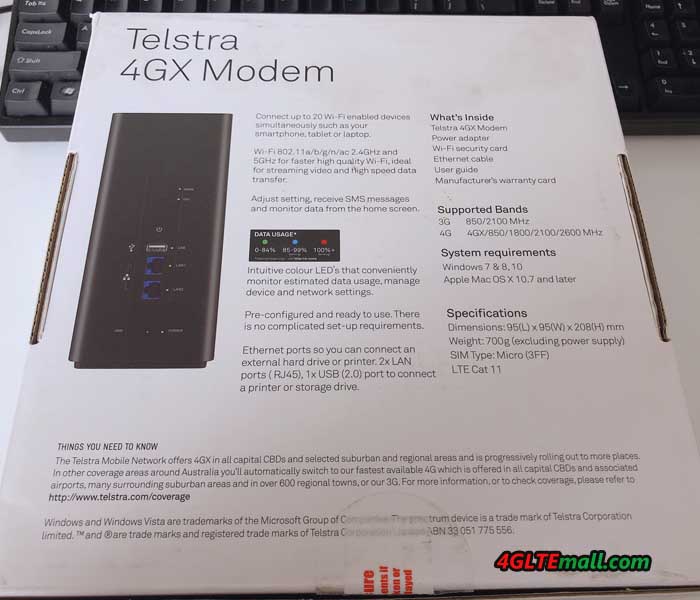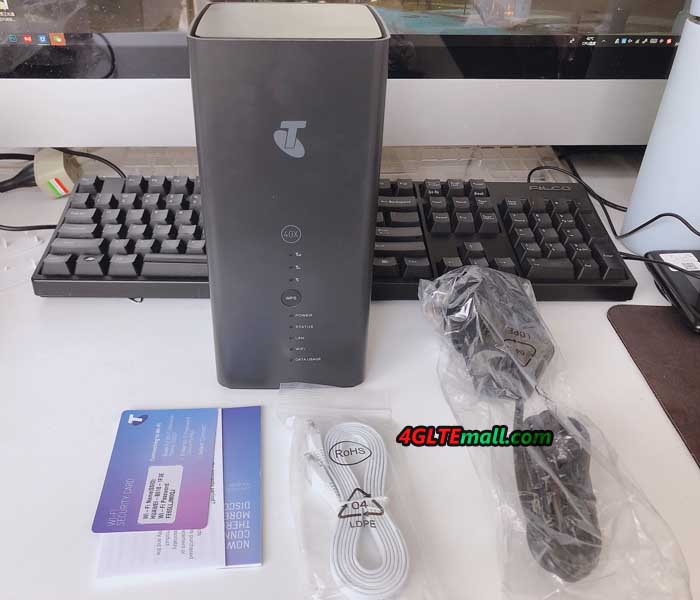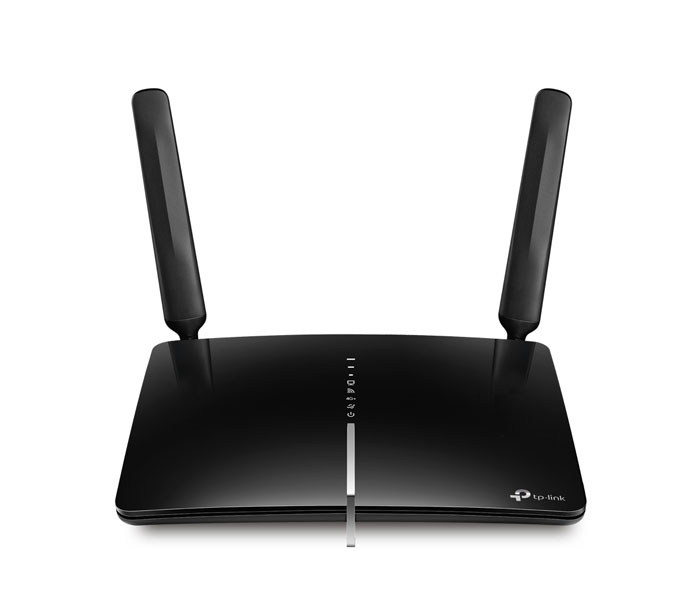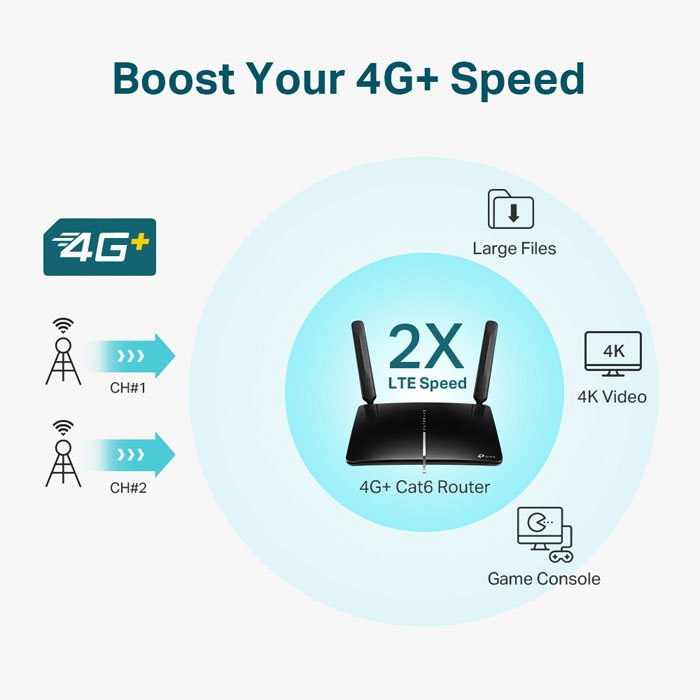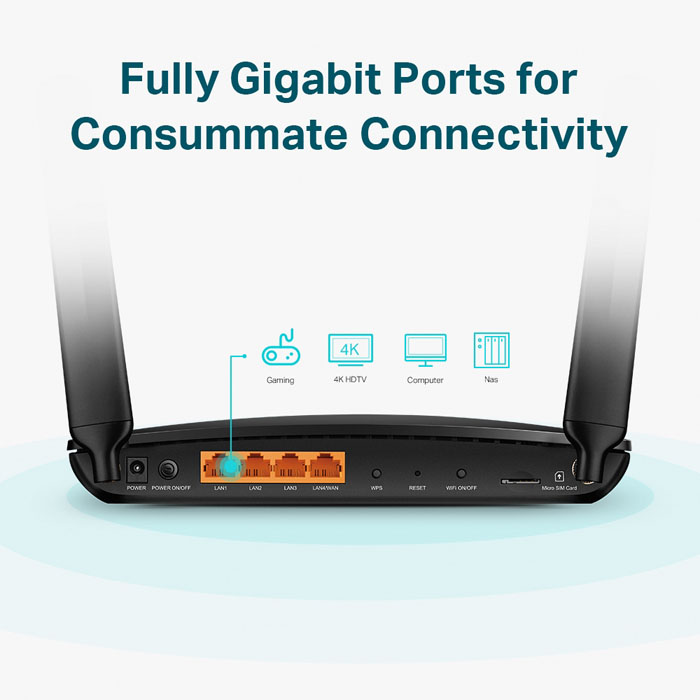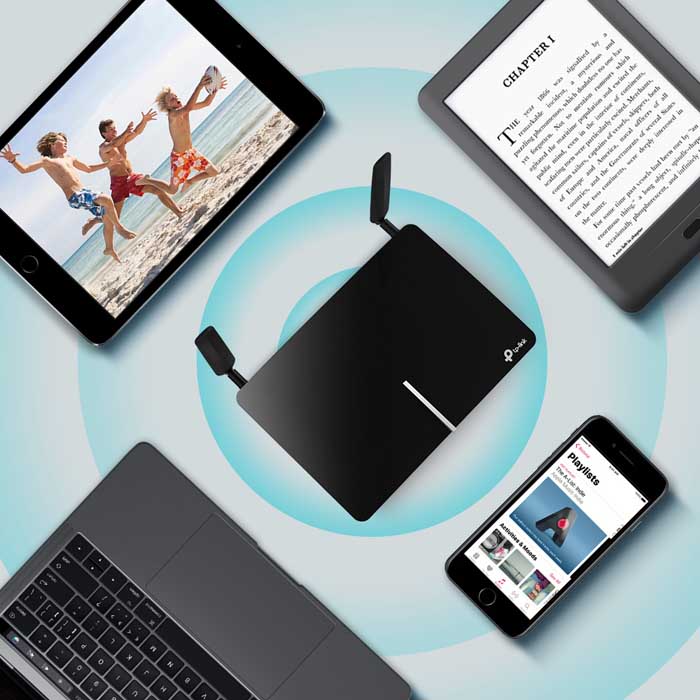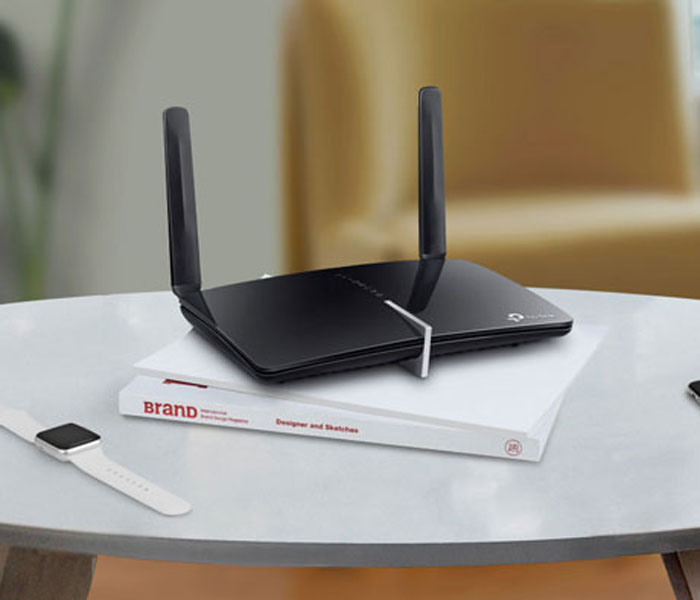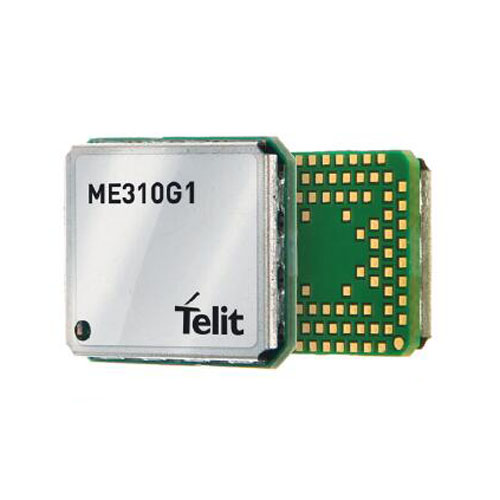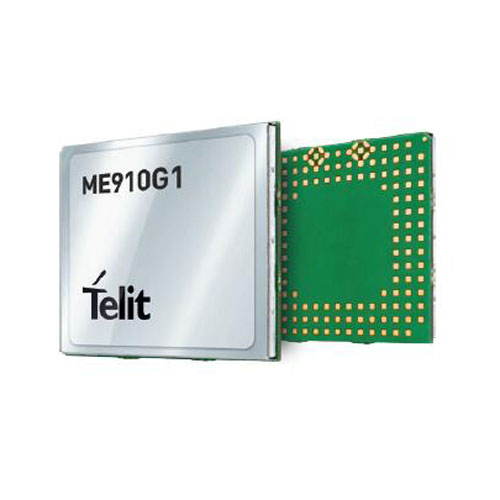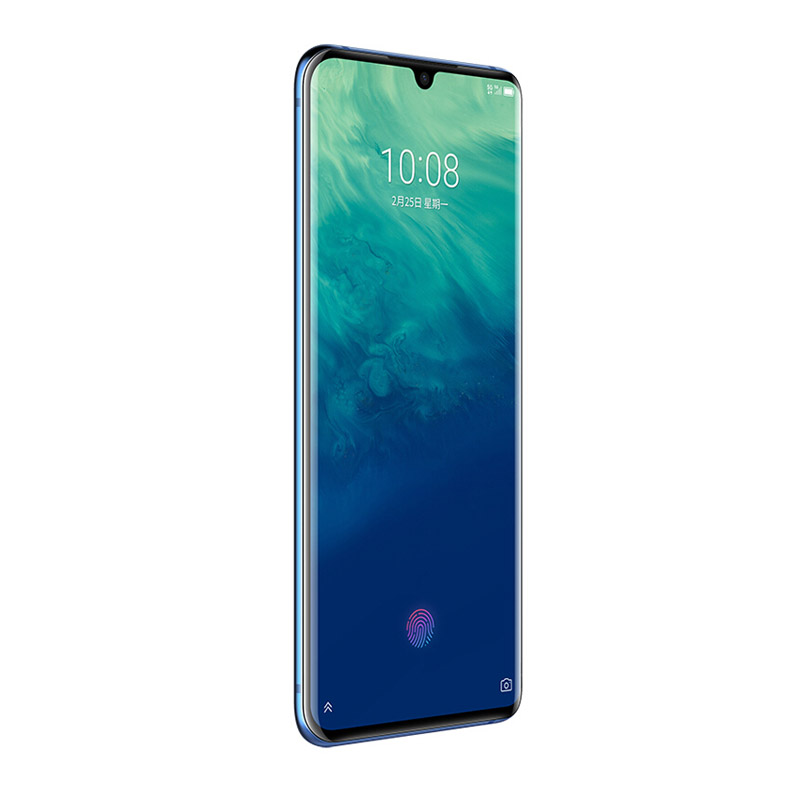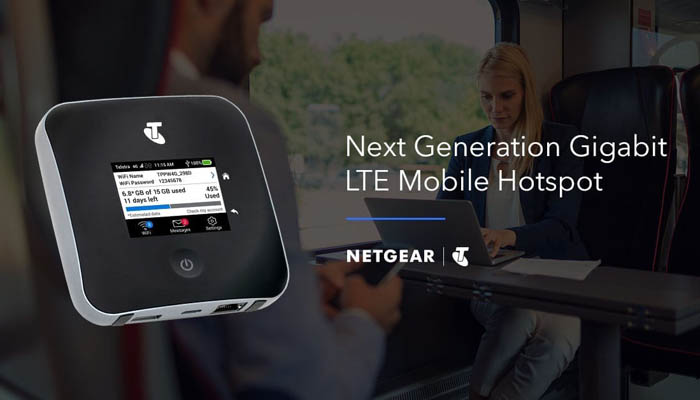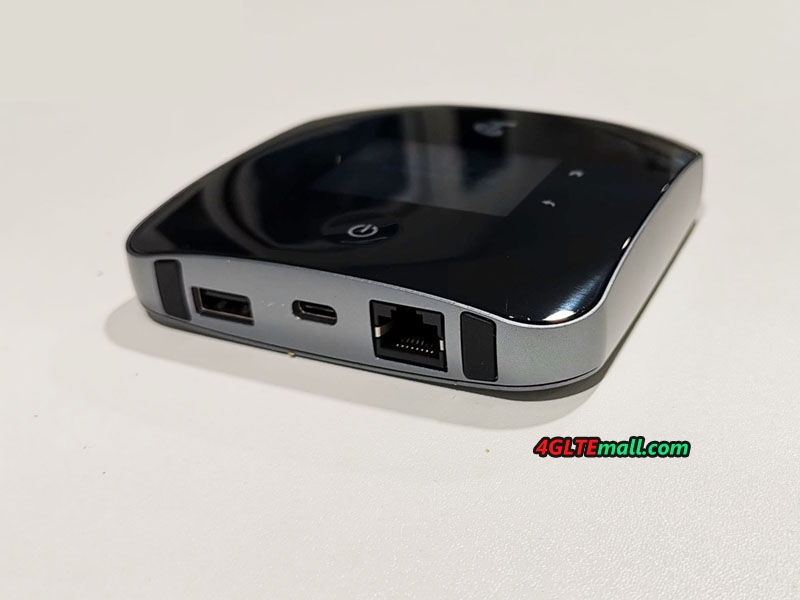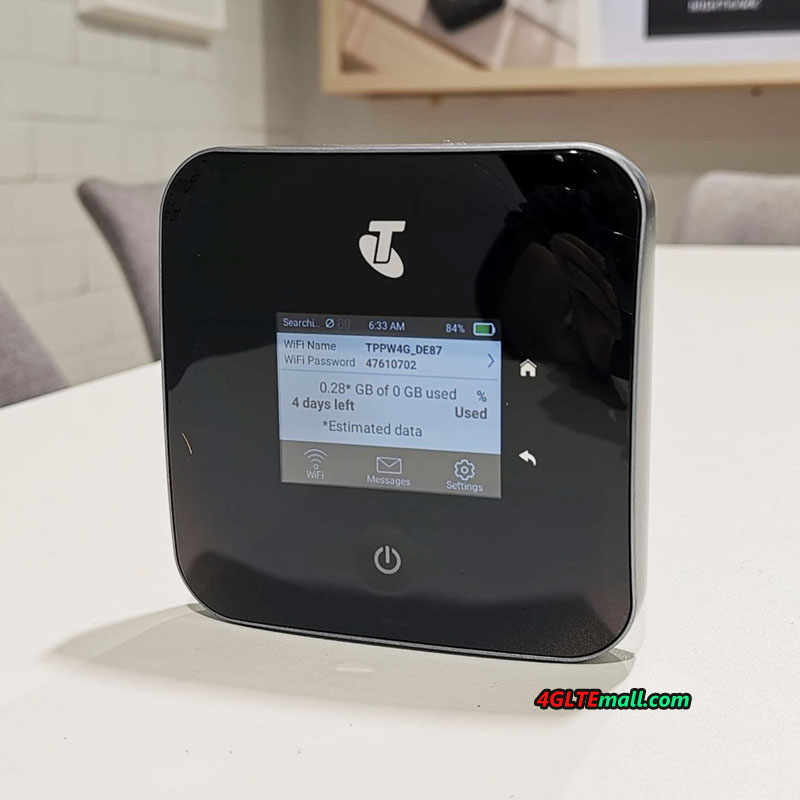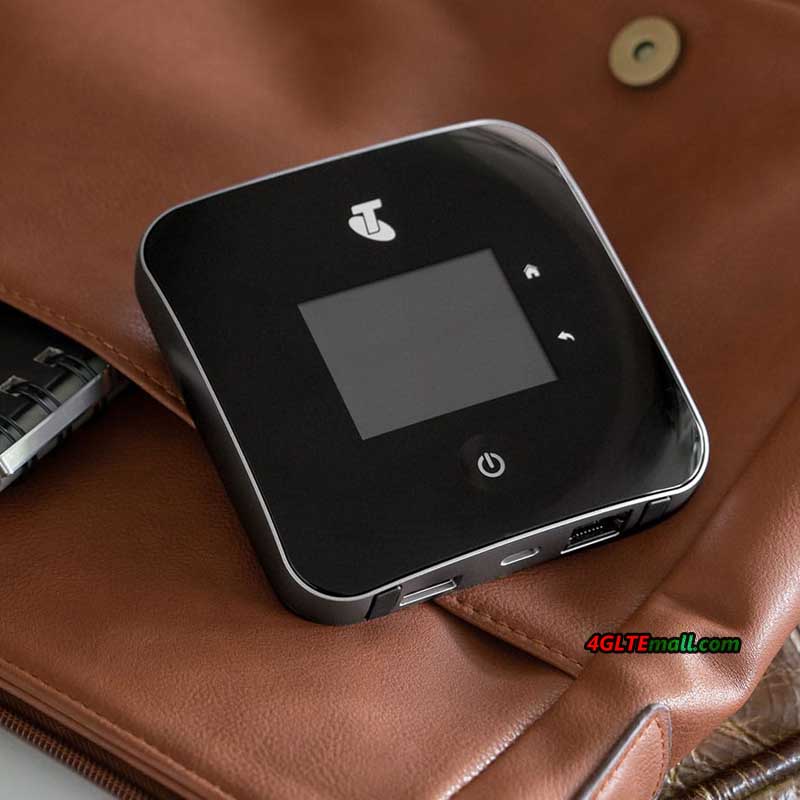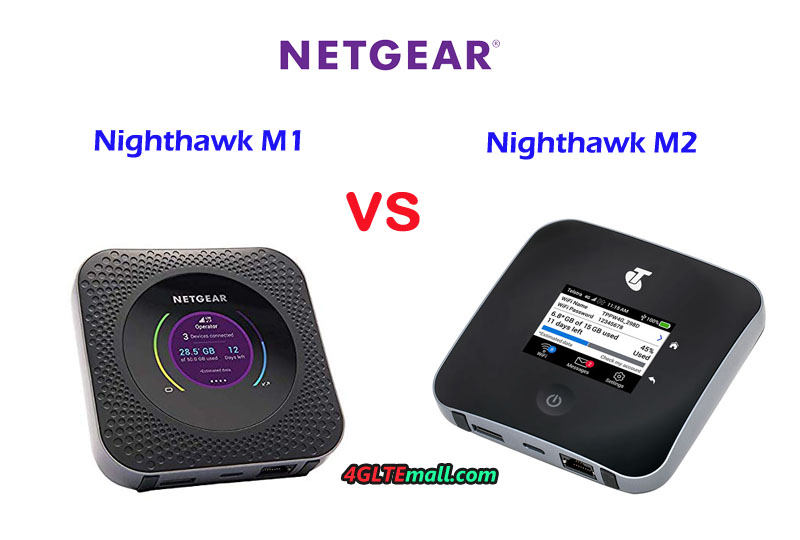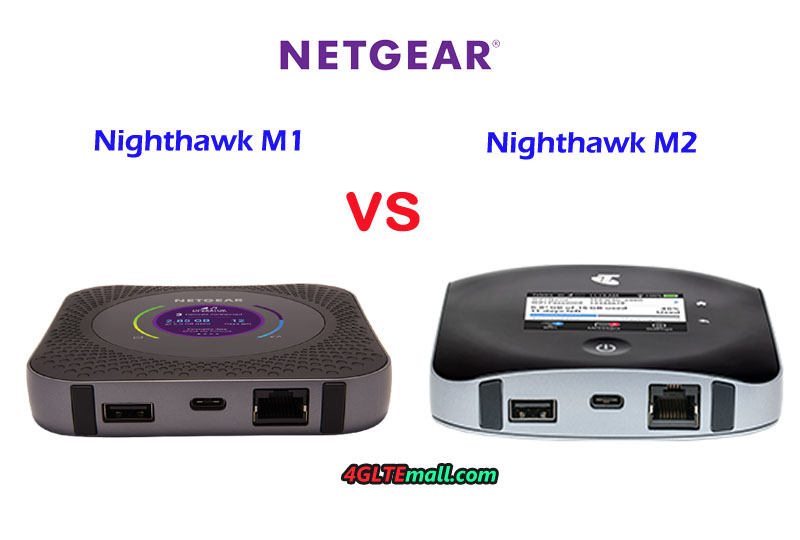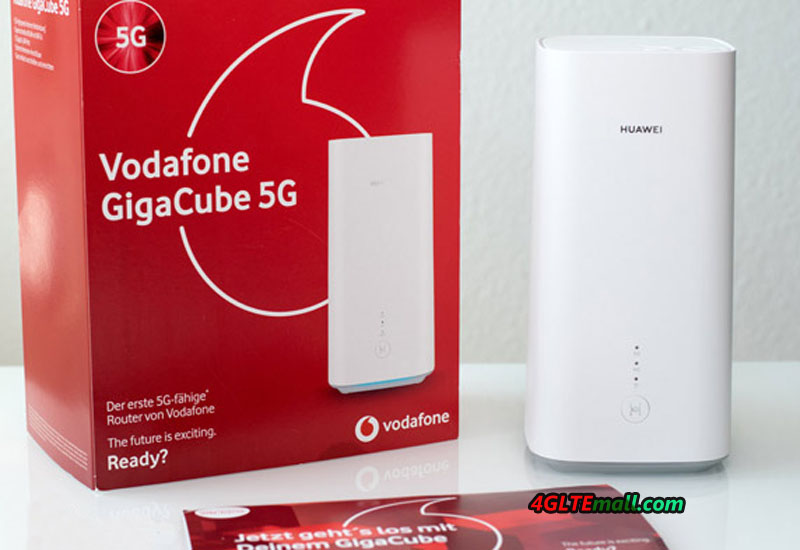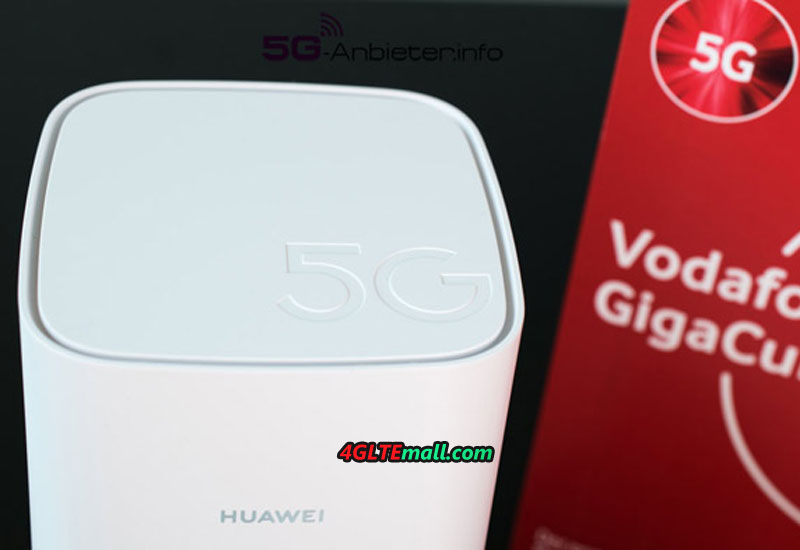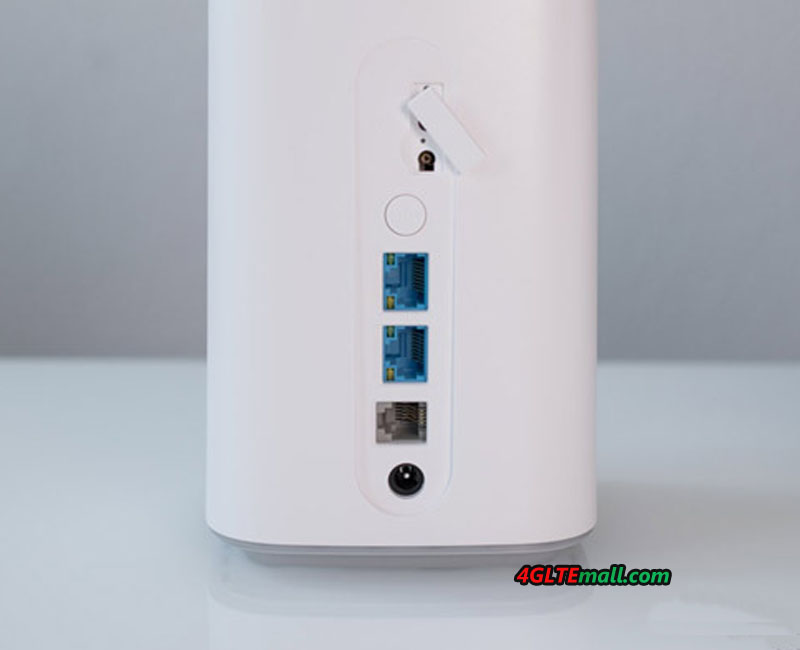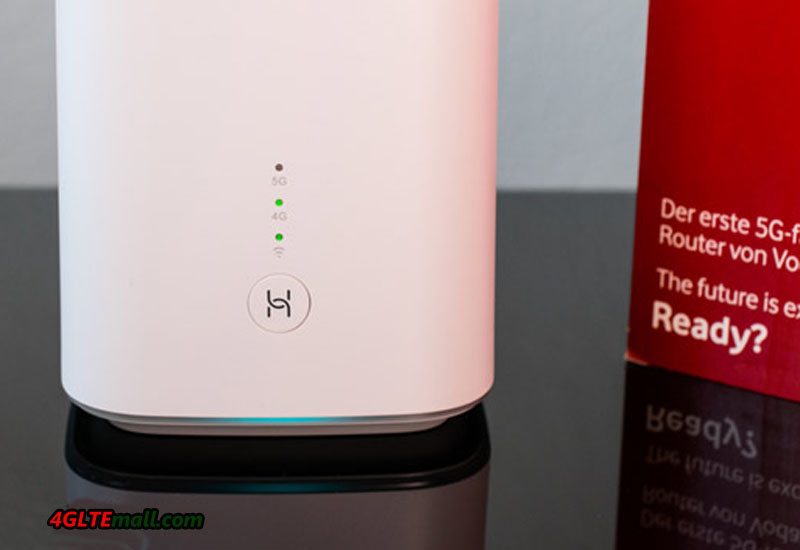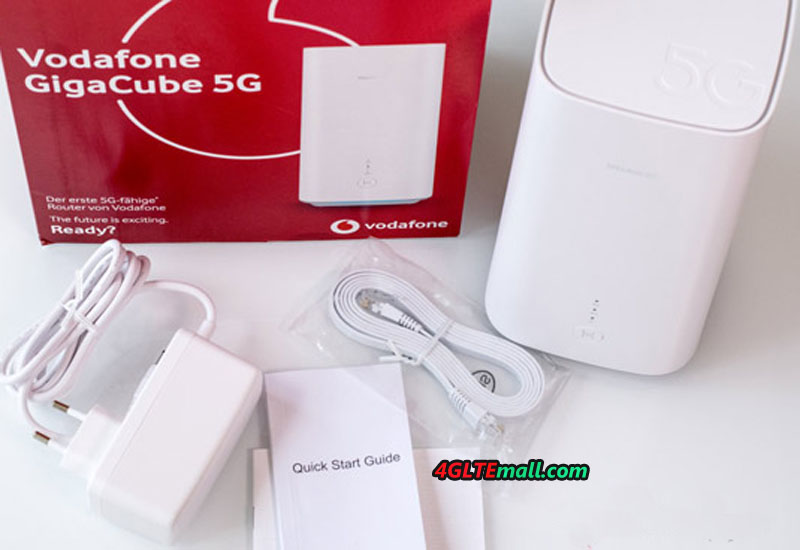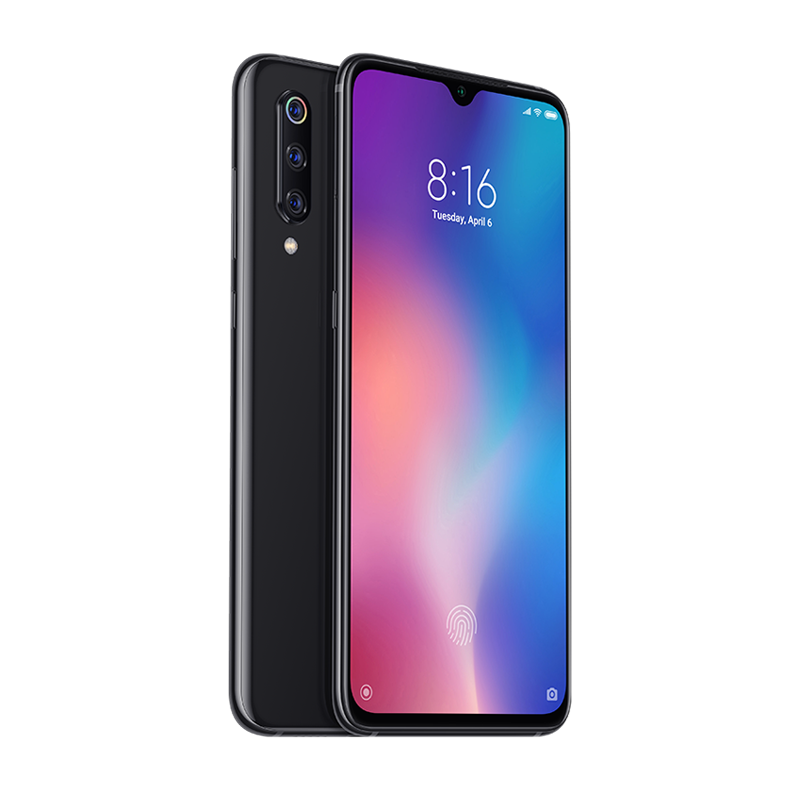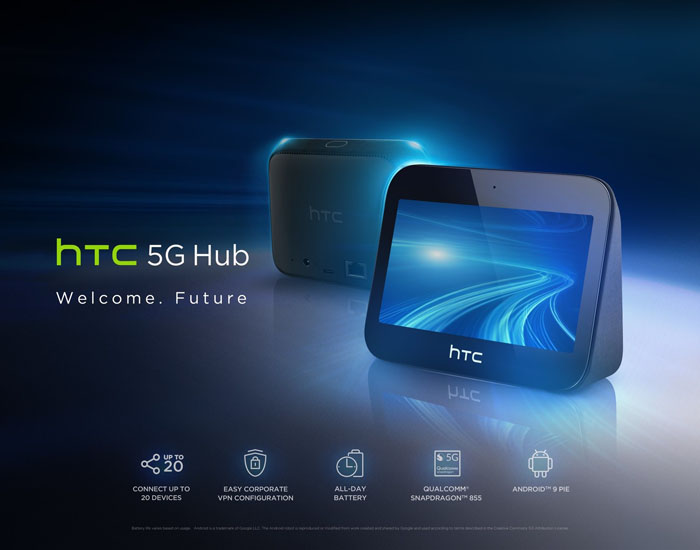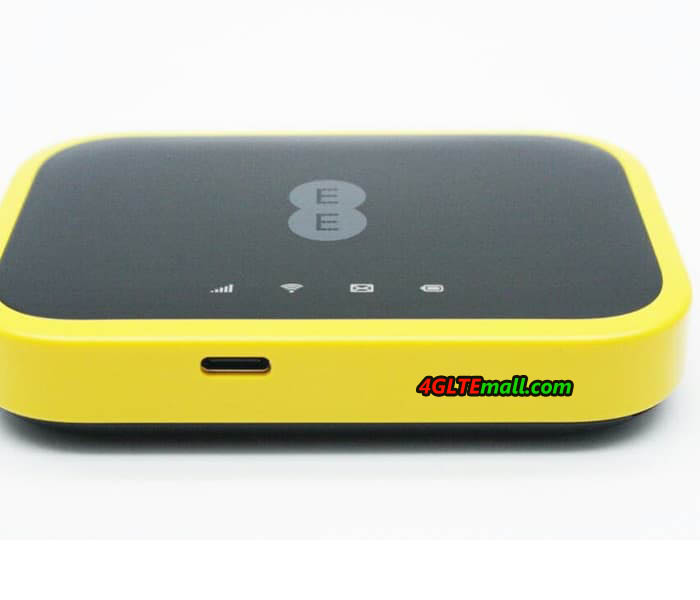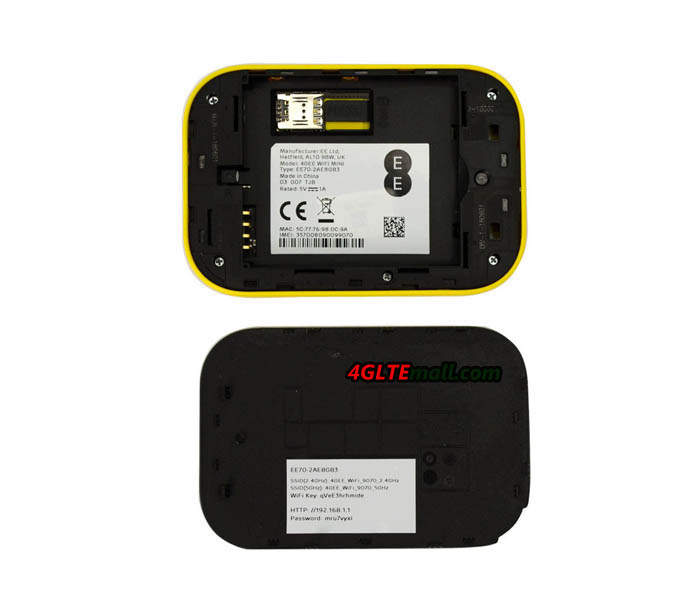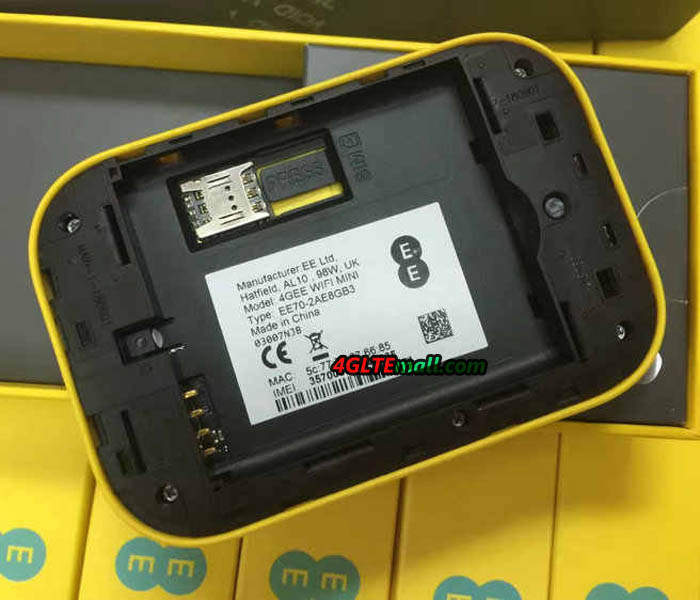China's telecommunication giant Huawei Technologies (Huawei) has announced its NR/LTE terminal "HUAWEI 5G CPE Pro (H112-372)" for China a few days ago. The Huawei 5G CPE is in white color and is a stationary wireless LAN router called Customer Premises Equipment (Customer Premise Equipment: CPE) compatible with the 5th generation mobile communication system (5G).
Huawei 5G CPE PRO H112-372 Launched for China
Huawei 5G CPE Pro Review
At Mobile World Congress 2019, Huawei introduces a 5G NR router named "5G CPE Pro", the device is designed to provide neat data throughput in the fifth-generation mobile network. Up to 6.5 Gbit/s can be realized in the download and thus puts the competitors Qualcomm in the shade for the time being. Not only the sub 6GHz frequencies, but also mmWave in the range of 26 to 28 GHz are supported. By Wi-Fi 802.11ax, the data packets come in the home network fast enough on the computer. Below table shows the detail feature and specifications of the Huawei 5G CPE Pro.
| Features and Specs of the Huawei 5G CPE Pro | |
| Manufacturer and device name | Huawei CPE 5G Pro H112-372 / H112-370 |
| Supported cellular standards | 2G, 3G, 4G, 5G |
| chipset | Huawei Balong 5000 |
| Maximum 5G data rate | 5100 Mbps; 1.25 MBit/s upload |
| 5G standalone | Yes |
| 5G Non-standalone | Yes |
| Sub 6GHz frequencies | Huawei H112-372: n41 / n77 / n78 / n79 Huawei H112-370: only n78 |
| mmWave frequencies | No |
| Network properties (LAN & WiFi) | |
| WLAN standards | a / b / g / n / ac and ax |
| Maximum gross data rate with WLAN | Huawei H112-372 1167 Mbps Huawei H112-370 5100 Mbps |
| Supported WLAN bands | 2.4 and 5 GHz |
| WLAN guest access can be installed | Yes |
| WLAN encryption standards | WPA, WPA2, WPS |
| Gigabit LAN | Yes |
| miscellaneous | |
| Connection for external 5G & LTE antenna | yes, 2 x TS9 |
| IPv6 support | Yes |
| NAS capability | Yes |
| Power consumption approx. | <24 watts |
| suitable for IPTV | Yes |
| can be used as a media server | No |
| USB ports on the back | No |
| Dimension and weight | 99 mm x 107 mm x 215 mm (700 grams) |
| Further information | |
| Manual for download (PDF) | not available |
| Available at | » www.4gltemall.com |
5G router with high bandwidth
With the Balong 5000, Huawei introduced a chipset that takes the lead in terms of bandwidth. Up to 6.5 Gbps are available here in the download. It is noteworthy that not only the frequencies below 6 GHz are usable. Even in the mmWave range between 26 and 28 GHz, data can be exchanged and thus ensure the high speed in perspective. The 5G CPE Huawei is one of the fastest on the market. As one of the first devices of its kind, the Huawei 5G CPE Pro also masters both communication possibilities of the fifth network generation. While many early implementations only offer non-stand-alone (NSA), the new CPE Pro is also capable of providing a data connection through standalone (SA). At the same time, however, it is also compatible with the old mobile network such as 4G LTE. If 5G is not available, the router 5G can automatically switch to 4G LTE networks.
Cool design
In the optical design, the Chinese manufacturer has given a lot of effort. Already the decision for white piano paint evokes memories of the manufacturer from Cupertino, which is responsible for the production of the iPhones. Upright and with rounded corners, it fits easily into the household. It provides information about the current status via three status LEDs. However, the Huawei 5G CPE pro has no built-in or removable battery, so it’s not for mobile.
WiFi 802.11ax Available
For gross data throughput rates of up to 4.8 Gbps, the WLAN provides 802.11ax. It uses the MIMO technology, which transmits over several antennas in variable frequency ranges. Up to 160 MHz of spectrum can be bundled. This ensures that the external connection can be used accordingly.
Availability
The 5G router is now open for sale in China. And Vodafone also presents this router with tariff. If your location has 5G coverage, you can get the 5G CPE Pro to enjoy amazing 5G speeds! [embed]https://www.youtube.com/watch?time_continue=21&v=i0iw1x1CRmw[/embed]
Huawei B612 VS Huawei B310
Since 4G LTE networks are more and more popular, people usually need one or more home WiFi router for the terminals at home to access the internet. Huawei had provided many wireless router models for home usage and many of the Huawei Home WiFi routers are very well-known by the users. The Huawei B310 router is one of them. A few months ago, Huawei presented a new 4G home WiFi router named Huawei B612. For those people who are looking for a home WiFi router, they may want to know what the difference is between the Huawei B612 and Huawei B310, and which one is better to buy. You may check below the images of the two routers and specs comparisons, in the summary, we will list the key difference between them for the reference.
Huawei B612 VS Huawei B310 Specifications
| Model | Huawei B612 | Huawei B310 |
| Product type | Huawei WiFi Router with Ethernet port | LTE WiFi Router |
| Category | LTE Cat.6 | LTE Cat.4 |
| Chipset | HiSilicon LTE Cat6 Chipset | Hisilicon Balong |
| LTE Data rates | DL 300Mbps/UL 50Mbps | DL 150Mbps/UL 50Mbps |
| Supported 4G LTE frequency bands | Huawei B612s-25d: B1/B3/B7/B8/B20/B38/B40/B41/B42/B43 Huawei B612s-51d: B2/B4/B5/B7/B41 | * Huawei B310s-927: B1/B3/B8/B40 * Huawei B310As-852: B3/B7/B8/B38/B39/B40/B41 * Huawei B310s-22: B1/B3/B7/B8/B20 * Huawei B310s-518: B1/B2/B4/B5/B7/B28 |
| WLAN | 802.11 b/g/n/ac, single-band 2.4GHz | 802.11b/g/n, single-band 2.4GHz |
| Max supported users | 32 users | 32 users |
| MIMO | 4 x 4 MIMO | n/a |
| Antenna | Two, SMA-female jacks | Two, SMA-female jacks |
| Buy Antenna | Huawei B612 external antenna | Huawei B310 external antenna |
| App management | Huawei Hilink APP | Huawei Hilink APP |
| SIM Size | Micro SIM | Standard SIM |
| Battery | NO | No |
| Dimensions | 240 × 155 × 78 mm | 181.0mm x 126.0mm x 70.0mm |
| Interfaces | * 3 x LAN port(RJ45) * 1 x LAN/WAN port (RJ45) * 1 x telephone port(RJ11) * Two external LTE antenna ports (SMA-female) * One micro-SIM card slot * 1 x USB 2.0 port | * 1 x power adapter port * 3 x LAN port(RJ45)(Depends) * 1 x LAN/WAN port (RJ45) * 1 x telephone port(RJ11)(depends) * Two external LTE antenna ports (SMA-J1.5) * One SIM card slot * 1 x USB 2.0 port(depends) |
| Datasheet | Huawei B612 Datasheet(PDF) | Huawei B310 Datasheet(PDF) |
| User Manual | Huawei B612 User Manual(PDF) | Huawei B310 Manual(PDF) |
| Other features | Firewall, CS Voice, VoIP, VoLTE, IPv6/IPv4 dual stack, NAT, DHCP, VPN, DMZ, UPnP, ALG, | Voice, DHCP, NAT, ARP, ICMP, DNS Relay, IPv6/IPv4 dual stack, VPN passthrough, Firewall, URL filter, LAN IP filter, DMZ, UPnP, ALG, Port forwarding |
| Firmware download | Huawei B612 firmware | Huawei B310 firmware |
| Driver | Huawei B612 driver | Huawei B310 driver |
| Reviews | Huawei B612 Review | Huawei B310 Review |
| Price/USD | 199.00USD | 139.00USD |
Summary
From the specs table, we could see the Huawei B612 is more advanced than Huawei B310 router. The main difference between the Huawei B612 and B310 focus on below:
- Speeds
Huawei B612 could support peak download speed up to 300Mbps and upload speed to 50Mbps based on LTE Cat6 while Huawei B310 supports peak download speed up to 150Mbps and upload speed to 50Mbps based on LTE Cat4.
- Variant models
Huawei B612 Router has two variant models while Huawei B310 has more up to 4 variant models. They support different LTE frequency bands, users to check which frequency bands are available for their network providers and then select the right model to use.
- Wireless technology
Huawei B612 and B310 both support single mode 2.4GHz for WiFi, but Huawei B612 support 4 x 4 MIMO technology, which would improve the data transfer speeds.
- Interfaces
Huawei B612 has the standard configuration for Huawei 4G routers, including 3 WAN ports, one WAN/LAN port, one telephone port, two connectors for external antennas, and one USB 2.0 port. However, in the Huawei B310 variant models, some of the interfaces may be missing on specific models. If you would buy Huawei B310, you may confirm how many WAN or LAN ports are available, whether there is telephone port in case you want to use some functions but no interface to support.
- Price
As the newer model and better technology, Huawei B612 price is higher than Huawei B310 price, but if you don’t have much requirements for the router, Huawei B310 is a budget router for home use.
Now you could make a decision of which router to buy between the Huawei B612 and B310 router.
Huawei B618s-66d (Telstra 4GX Modem) Router Review
The Huawei B618 was available in many countries since 2018 and now becomes one of the best LTE routers in the market. If you are familiar with Huawei B618 router, you may know there are two variant models for Huawei B618 Router: They are B618s-22d and B618s-65d. Here we get a new variant Huawei B618s-66d. Like other Huawei 4G LTE WiFi routers, the Huawei B618s-66d supports different LTE frequency bands from the two brother models.
Huawei B618s-66d Appearance
Huawei B618s-66d is a customized router from Australian network carrier Telstra, who gives it a new name “Telstra 4GX Modem”. The Telstra 4GX Modem router has same shape as the two brother model, but it has Telstra logo on the front instead of Huawei logo. The LED indicators are still there, including three antenna indicators, Power indicator, Status indicator, LAN, WiFi and data usage indicators.
On the back of the Huawei B618 Telstra, the two connectors for external antennas are available and covered by a small tap. The connector type is TS-9. Below are the power button, USB 2.0 Port and two Ethernet ports for LAN. There is no battery in the Huawei B618 router, so the Power plug for adapter is also available. However, unlike the Huawei B618s-22d, the Ethernet ports in Telstra 4GX Modem B618s-66d are both for LAN. In B618s-22d, one is for LAN and the other one is for both LAN and WAN.
The SIM card slot is at the bottom of the Telstra 4GX Modem. The Reset button is at the side of the SIM card slot. And a stick indicates the model B618s-66d, SSID, WiFi Key, IP, user name, password, WPS pin, IMEI number, S/N number, and some certificates etc... The Huawei B618s-66d uses Micro-SIM card.
Huawei B618s-66d (Telstra 4GX Modem) Specs Review
- Support 4GX Cat11
- Support 4G LTE Frequency Band 1/3/5/7/28 700/850/1800/2100/2600MHz
- Support 4 x 4 MIMO
- Support up to 20 WiFi-enabled devices simultaneously
- WLAN IEEE 802.11a/b/g/n/ac, 2.4GHz and 5GHz
- SIM Type: Micro(3FF)
- 2 x LAN ports(RJ45), 1 X USB(2.0) port to connect a printer or storage drive
- Huawei Hilink App. Easy management by smartphone or pad
On the Telstra official site, it doesn’t list the LTE Band 28. We re-checked with Telstra and get confirmation that Huawei B618s-66d Telstra 4GX Modem supports Band 28. The Huawei official site says the Huawei B618 Australia router could support maximum up to 64 users, but the Telstra 4GX Modem supports only 20 devices simultaneously.
Huawei B618s-66d (Telstra 4GX Modem) Price
Due to specs subtraction of the Telstra 4GX Modem, the price is a little cheaper than the original model B618s-22d and B618s-65d. If you want the original functions, you may use the Huawei B618s-65d which could fully replace B618s-66d to use in Australia.
TP-Link Presents a New 4G+ Cat6 Router Archer MR600
Many people may know the TP-Link Archer MR200 and Archer MR400, which were available in the market for years. They can achieve download speed up to 150Mbps through 4G wireless network. Recently, TP-link presents a new router to meet the demand of faster 4G LTE connection. The new router model is Archer MR600, following the series of MR200 and MR400.
TP-Link Archer MR600 Appearance
The Archer MR600 is a 4G Category 6 Router, which could achieve download speed up to 300Mbps. If you had read our blog, you may know we had introduced many 4G+ Cat6 routers from Huawei. On this point, TP-link is walking very slowly on 4G LTE products. The design of TP-link MR600 looks similar to the predecessors, but there is some difference. The Archer MR400 external antenna is non-removable, but now the Archer MR600 could do. And the original antenna with the MR600 could be unscrewed so that users can install outdoor antenna or change the antennas.
TP-Link Archer MR600 Specifications:
The technical specifications of Archer MR600 are very similar to the two predecessors. It supports 4G LTE Frequency bands as below:
* 4G FDD-LTE: B1/B3/B5/B7/B8/B20/B28 (2100/1800/850/2600/900/800/700 MHz)
* 4G TDD-LTE: B38/B40/B41 (2600/2300/2500 MHz)
* 3G DC-HSPA+/HSPA/UMTS: B1/B5/B8 (2100/850/900 MHz)
The feature makes the TP-link MR600 could be used with almost all the network providers in Europe and Aisa. The Archer MR600 has a Micro SIM card slot on the back and will probably come with a format adapter. With support for 4G + Cat6 using Carrier Aggregation technology, you can maximize your 4G network at speeds up to 300 Mbps, plug in your SIM card and stream HD movies without interference or download files in no time. With the Archer MR600, you can connect up to 64 devices at the same time without having to worry about the connection.
Regarding the WLAN features, TP-link MR600 covers the current AC1200 stand:
- IEEE 802.11a/n/ac 5GHz and IEEE 802.11 b/g/n 2.4GHz
- Dual-band WiFi 2.4GHz and 5GHz
- Signal rate: 300Mbps at 2.4GHz, 867Mbps at 5GHz
- Support encryptions: 64/128-bit WEP, WPA/WPA2, WPA-PSK/WPA2-PSK
The WiFi can be activated or deactivated with the possibility to activate the scheduler/daily. The Archer MR600 creates a Dual Band WiFi network that can give you speeds up to 867 Mbps. The two 2.4 and 5 GHz bands provide optimized performance and minimize interference when streaming movies, downloading files, or listening to music. Thanks to two removable and advanced antennas and the latest wireless technology, you can enjoy stable connections, high speeds and good coverage.
TP-Link Archer MR600 Interfaces
Archer MR600 provides 4 Gigabit Ethernet ports including a LAN/WAN port that will allow you to connect your router to your fixed network provider if necessary. In this configuration, you can designate your WAN connection as the primary connection and define your 3G/4G connection as a backup connection in case of a failover.
TP-Link Archer MR600 functions
The operating system of the MR600 remains in line with other TP-link 4G Routers, therefore we find most of the expected features:
- Operating mode: 3G/4G Router, Wireless Router
- WAN Type: Dynamic IP, IP Static, PPPoE, PPTP (Dual Access), L2TP (Dual Access)
- DHCP: Server, Client DHCP list, Address Reservation
- Quality of service: Bandwidth Control
- Port forwarding: ALG, Virtual Server, Port Triggering, UPnP, DMZ
- Dynamic DNS: DynDns, NO-IP
- VPN Server: PPTN VPN, IPsec VPN, OpenVPN
- Security: DoS, IPv4 SPI Firewall, IPv6 Firewall, IP and MAC Address Binding, Access Control
- Protocols: IPv4, IPv6
- Management: TP-link Cloud, Local Management, Remote Management
- Administration: Upgrade Firmware, Default Factory, System Log, Diagnostic Tools
- Network Guest: 2.4GHz Guest Network x 1, 5GHz Guest Network x 1
TP-link MR600 Installation
The Archer MR600 requires no installation or configuration with software or apps, just plug in the power cable and insert your sim card to then start the router that automatically connects to the 4G network and distributes the signal via WiFi or the four LAN ports.
The TP-link Archer MR600 is of course compatible with TP-link OneMesh networks if you have compatible equipment. The 4G LTE router allows you to quickly get started on a wireless network wherever you are. The Archer MR600 is the perfect router if you are in the cabin, in a hotel or in a remote location and need access to WiFi. With Plug-and-play, just plug it in to get started. From the exhibition center to the caravan, the MR600 gives you what you need.
Telit Released Two New LTE Modules ME310G1 and ME910G1
Like its competitors Quectel and Gemalto, the British manufacturer of cellular radio modules Telit will present two LTE module models compatible with LTE-M and NB-IoT based on the Qualcomm 9205 chip, which is an LTE modem announced at the end of 2018 and combines LTE Cat-M1(eMTC or LTE-M), LTE Cat-NB2(NB-IoT) and 2G/E-GPRS connectivity, application processor, satellite geolocation (GPS, Beidou, Glonass , and Galileo) on a single chip.
The two model numbers are ME310G1 and ME910G1, which have an optional 2G fallback mode (in case the NB-IoT and LTE-M networks are not available). They are the first Telit LTE modules compatible with the Release 14 3GPP and target applications at medical devices worn on oneself, sport activity plotters and industrial sensors. The new modules are ideal for battery-powered applications via improved features such as Power Saving Mode (PSM) and extended Discontinuous Reception (eDRX), which periodically wakes up the device to transmit only the smallest amounts of data necessary before returning to sleep mode. Both modules also ensure reliable indoor connections, with a maximum coupling loss of up to +15dB/+20dB for superior in-building penetration compared to earlier LTE standards.
As the latest member of the Telit xE310 family, the Telit ME310G1 is 14.3 x 13.1 mm and can replace 2G, 3G and LTE modules that are compatible with this format in existing devices. The ME310G1 LTE-only variant is less than 200 mm2 and variant with 2G fallback is less than 300mm2 and they enable enterprises to deploy new small footprint designs across many application areas including asset tracking, health-care monitoring, smart metering, portable devices, industrial sensors, home automation, and others that benefit from low-power and low-data rate capabilities. The xE310 family’s flexible perimeter footprint includes pin-to-pin compatible 2G and 4G modules, enabling integrators to design a single PCB layout and deploy a combination of technologies.
The Telit ME910G1 module is in dimensions of 28.2 x 28.2 mm. And it is the latest member of Telit’s best-selling xE910 and family. The ME910G1 is also a drop-in replacement in existing devices based on the family’s modules for 2G, 3G and the various categories of LTE. With Telit’s design-once-use-anywhere philosophy, developers can cut costs and development time by simply designing for the xE910 LGA common form factor, giving them the freedom to deploy technologies best suited for the application’s environment.
Both versions are finally compatible with GSM voice calls and will eventually be used in VoLTE applications that require the ability to make phone calls (in the area of personal safety for example). Samples of the ME310G1 and ME910G1 modules are already available. Volume production is planned at the end of 2019 or the first quarter of 2020 depending on the version.
ZTE Axon 10 Pro 5G Cell Phone Review
ZTE Axon 10 Pro 5G was introduced for few months and now it’s available for sale in China. It’s not the first 5G phone available over the world, what’s the highlight features and price of ZTE Axon 10 Pro 5G cell phone, you will find the answer in the following review.
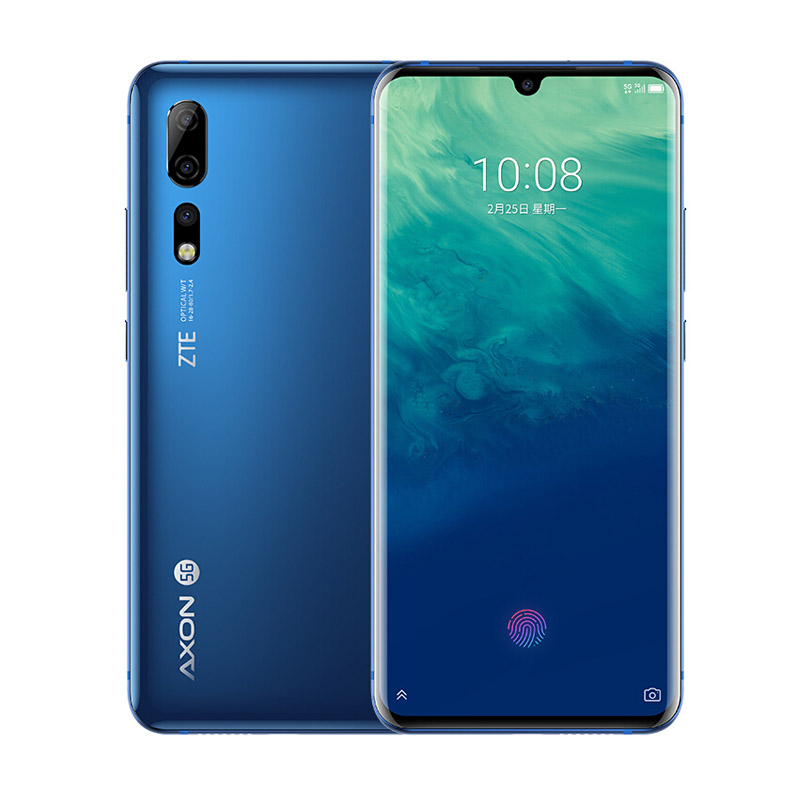
ZTE Axon 10 Pro 5G review
ZTE Axon 10 Pro 5G Specifications:
| Brand | ZTE |
| Model | Axon 10 Pro 5G |
| Release date | February 2019 |
| Form factor | Touchscreen |
| Dimensions (mm) | 159.20 x 73.40 x 7.90 |
| Battery capacity (mAh) | 4000 |
| Fast charging | Quick Charge 4+ |
| Wireless charging | Yes |
| Screen size (inches) | 6.47 |
| Touchscreen | Yes |
| Resolution | 1080x2340 pixels |
| Processor | octa-core |
| Processor make | Qualcomm Snapdragon 855 |
| RAM | 6GB |
| Internal storage | 128GB |
| Expandable storage | Yes |
| Expandable storage type | microSD |
| Expandable storage up to (GB) | 2 |
| Rear camera | 48-megapixel (f/1.7) + 20-megapixel (f/2.2) + 8-megapixel (f/2.4) |
| Front camera | 20-megapixel (f/2.0) |
| Operating system | Android Pie |
| Wi-Fi | Yes |
| Wi-Fi standards supported | 802.11 a/b/g/n/ac |
| Bluetooth | Yes, v5.00 |
| USB Type-C | Yes |
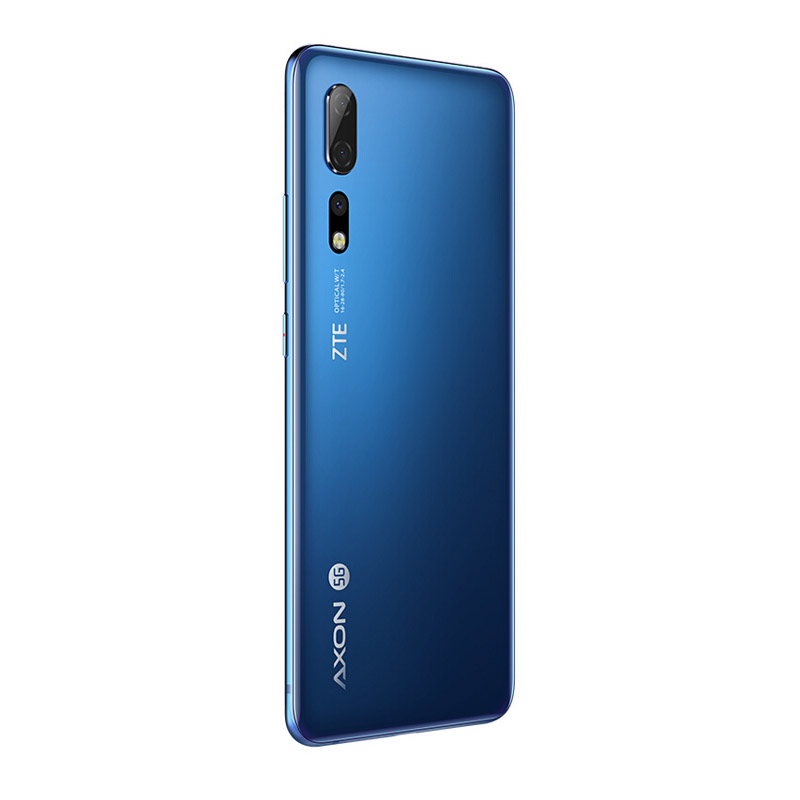
ZTE Axon 10 Pro 5G Price
Announced 5G User Devices
This data is provided for information only, as a guide to current 5G ecosystem market development and trends. Some devices may be produced in different variants according to supported frequency bands, operator customization, etc. and may therefore not be available in all markets. Shipping dates/commercial availability are not indicated. The status is at April 2019.
5G Mobile Phones:
- Huawei Mate X Foldable
- Huawei Mate 20 X 5G
- Huawei Mate 30 5G
- LG V50 ThinQ
- LG G8 ThinQ 5G Phone
- OnePlus 5G
- OnePlus 7 Pro
- Oppo Find X 5G (prototype)
- OPPO Reno 5G
- Samsung Galaxy S10 5G
- Samsung Galaxy Fold 5G
- Samsung Galaxy Note 10+ 5G
- Sony Xperia 5G mmWave (prototype)
- TCL Alcatel 7
- VIVO NEX 5G
- VIVO iQOO Pro 5G
- Xiaomi Mi Mix 3 5G
- ZTE Axon 10 Pro 5G
- ZTE Nubia Mini 5G
- Xiaomi Mi 9 Pro 5G
- China Mobile Pioneer X1
5G CPE or 5G Mobile WiFi Router:
- D-Link DWR-2010 5G NR NSA Enhanced Gateway
- HTC 5G Hub (mobile hotspot with 5” media display)
- Huawei 5G CPE Pro
- Huawei 5G CPE Pro mmWave
- Huawei 5G CPE Pro sub-6GHz
- Huawei 5G Outdoor CPE
- Huawei 5G Mobile WiFi (mobile hotspot)
- Inseego R1000 5G Home Router
- Inseego 5G NR MiFi Hotspot
- Netgear Nighthawk M2 5G mobile hotspot
- Netgear Nighthawk M5 Fusion MR5000 5G mobile hotspot
- Nokia FastMile 5G home gateway
- Samsung SFG-D0100 5G home gateway
- TCL Alcatel 5G mobile hotspot
- Gemtek WLTFDQ-154AX Gigabit LTE & 5G CPE
- ZTE MC801 5G Indoor WiFi Router
- FRITZ!Box 6850
5G Modules/Data Cards:
- Huawei MH5000 5G Car Module
- Quectel RG500Q 5G NR sub-6GHz Module
- Quectel RG510Q 5G NR sub-6GHz and mmWave module
- Quectel RM500Q 5G NR sub-6GHz module
- Quectel RM510Q 5G NR sub-6GHz and mmWave module
- Quectel AG550Q 5G C-V2X Automotive Grade Module
- Sierra Wireless AirPrime 5G module (M.2 form factor)
- Telit FM980 5G Module
- Telit FM980m 5G Module
- Fibocom FB101 5G Module
- Fibocom FB150 5G Module
- ZTE 5G RF module (series)
- SIMCOM SIM8300-M2 5G Sub-6Ghz and mmWave Module
- SIMCOM SIM8300 5G NR Sub-6GHz & mmWave Module
- SIMCOM SIM8200G-M2 5G NR Module
- SIMCOM SIM8200EA-M2 5G NR Sub-6GHz Module
- SIMCOM SIM8200G 5G NR Sub-6G Module
- LongSung EX510 5G/LTE-FDD/LTE-TDD/HSPA+ Module
- LongSung EX520 5G NR M.2 Module
- LongSung EX610 5G NR Module
Netgear Nighthawk M2 MR2100 Review
Netgear Nighthawk M2 MR2100 Mobile Hotspot is a latest LTE pocket WiFi router which not only can connect more devices than regular Wi-Fi router, but also has enough power to operate all day, and can be connected to a power outlet for a long time. The Netgear Nighthawk LTE mobile hotspot has a LAN, which can make it connect with an Ethernet cable to provide WiFi network coverage, and the USB port, which can let it charge other electronic devices.
Netgear M2 is the fastest 4G LTE mobile hotspot and equipped with Qualcomm Snapdragon X24 LTE Modem, it supports 5CA carrier aggregation technology, up to 2Gbps download / 150Mbps upload speed. Up to 20 devices can be connected with the Netgear Nighthawk M2 MR2100 at the same time, and WiFi high-speed Internet access is available at any time, whether traveling for a large group of people, or for meetings and venues.
The body of the Netgear 4G mobile router comes with a LAN socket, and you can change into a Wi-Fi transmitter when connecting with an Ethernet cable at hotel. Even if the hotel does not have free Wi-Fi, it can provide wireless Internet access only if you had a valid SIM card. It also supports VPN function to make it easier to travel.
Here now the Netgear Nighthawk M2 router is available in Australia and Europe and it has two variant models: MR2100-1TLAUS and MR2100-100EUS. They support different LTE frequency bands as below:
- MR2100-100EUS: LTE 700/800/900/1800/2100/2300/2500/2600 MHz
- MR2100-1TLAUS: LTE/4GX 700/900/1800/2100/2600 MHz
Netgear Nighthawk M2 Highlight Features:
- Fastest LTE mobile WiFi hotspot
- 5CA carrier aggregation technology, up to 2Gbps Download
- High-speed AC WiFi 2.4/5GHz synchronous dual-band
- High-speed Internet access for up to 20 devices
- Easier to use LCD touch screen
- Up to 16 hours of battery life
- Removable battery connection indoor power supply fixed point operation
- 1*Gigabit LAN/WAN socket
- 1* USB-C / 1* USB-A socket
- JumpBoost function can provide charging for mobile phones or other devices
Netgear Nighthawk M2 MR2100 Specifications:
- LTE Modem: Qualcomm Snapdragon X24
- LTE network speed
- support 5CA carrier aggregation
- 2Gbps down
- up to 150Mbps
- Operation screen: 4 inch LCD touch screen
- Connection socket
- 1*Gigabit LAN/WAN socket
- 1*USB-C / 1*USB-A socket
- 2*TS-9 external 3G/4G antenna socket
- Battery: 5040mAh replaceable lithium battery
- Body size: 105.5 (L) x 105.5 (W) x 20.35 (H) mm
- Weight: 240g (with battery)
Netgear Nighthawk M2 VS M1
To meet the requirements from 5G network, Netgear presented a new mobile WiFi hotspot Nighthawk M2 for the Australian network provider Telstra and carriers in Europe. Netgear Nighthawk M2 is an ultra-fast portable WiFi router with next-generation Gigabit 4G LTE connectivity with a download speed of up to 2 Gbps. The Netgear Nighthawk M2 5G router is upgraded from the predecessor Nighthawk M1, so you may ask what’s the difference between Netgear Nighthawk M2 and M1?
In the table below, you will see the details specs of Netgear Nighthawk M2 unlocked and Nighthawk M1 unlocked for your reference:
| Model | Netgear Nighthawk M2 | Netgear Nighthawk M1 |
| Product type | 5G Mobile Hotspot | 4G LTE Mobile Hotspot |
| Category | LTE Cat.20 | LTE Cat.16 |
| Chipset | Qualcomm Snapdragon X24 | Qualcomm MDM9x50 |
| Data rates | DL 2Gbps/UL 150Mbps | DL 1Gbps/UL 100Mbps |
| Supported 4G LTE frequency bands | -- Telstra Nighthawk M2 MR2100-1TLAUS: Band 1/3/7/8/28 -- Nighthawk M2 MR2100-100EUS: Band 1/3/7/8/20/28/38/40/41 -- Hong Kong Nighthawk M2: LTE Band 1/3/8/20/29/30/38/40/41 | -- Telstra Nighthawk M1: Band 1/3/7/8/28 -- AT&T Nighthawk M1: Band 1/2/3/4/5/7/12/29/30/66 -- Hong Kong Nighthawk M1: LTE Band 1/3/8/20/29/30/38/40/41 |
| WLAN | 802.11a/b/g/n/ac, dual-band 2.4GHz & 5GHz | 802.11a/b/g/n/ac, dual-band 2.4GHz & 5GHz |
| Max support users | 20 users | 20 users |
| MIMO | 4 X 4 MIMO | 4 X 4 MIMO |
| Connector for external antenna | Two, TS-9 jacks | Two, TS-9 jacks |
| Buy Antenna | Netgear Nighthawk M2 Antenna | Netgear Nighthawk M1 Antenna |
| App management | Netgear Aircard APP | Netgear Aircard APP |
| SIM type | Micro SIM | Micro SIM |
| Battery | Removable, 5040 mAh | Removable, 5040 mAh |
| Dimensions | 105.5 x 105.5 x 20.35 mm | 105.5 x 105.5 x 20.35 mm |
| Ethernet Port | * One port for LAN port(RJ-45) * One port of USB-A * One port of USB-C | * One port for LAN port(RJ-45) * One port for USB 2.0 |
| Datasheet download | Netgear Nighthawk M2 Datasheet | Netgear Nighthawk M1 Datasheet |
| User Manual | Netgear Nighthawk M2 Manual | Netgear Nighthawk M1 Manual |
| Other features | 3GPP, Rel. 14, 5 band CA, 256QAM DL / 64QAM UL, JumpBoost | 3GPP, Rel. 12, 4 band CA, 256QAM DL / 64QAM UL, JumpBoost |
| Firmware download | Nighthawk M2 Firmware | Nighthawk M1 Firmware |
| Drivers | Nighthawk M2 Driver | Nighthawk M1 Driver |
| Reviews | Netgear Nighthawk M2 Review | Netgear Nighthawk M1 Review |
| Price | 999.00USD | 459.00USD |
Here you can check the general comparison of Nighthawk M2 and M1:
Nighthawk M2 Mobile Router (MR2100):
- LTE CAT 20, DL support up to 2Gbps speeds - 3GPP, Rel. 14
- 5CA with 20 simultaneous Downlink layers
- 4x4 MIMO
- 256QAM DL / 64QAM UL CA 3C, 7C
- 11ac Dual band dual concurrent
Nighthawk M1 Mobile Router (MR1100):
- LTE CAT 16, DL support up to 1Gbps speeds - 3GPP, Rel. 12
- 4CA with 10 simultaneous Downlink layers
- 4x4 MIMO
- 256QAM DL / 64QAM UL CA 3C, 7C
- 11ac Dual band dual concurrent
We can see that, based on the technology improvement, Netgear Nighthawk M2 is more advanced than M1, M2 can achieve download speed up to 2Gbps while M1 only half of it. And the Nighthawk M2 has larger touch screen to 2.4 inches. Other features are very similar.
Vodafone GigaCube 5G Router H112-370 Review
Vodafone is the first operator in Germany to provide 5G service. To help users enjoy 5G service, Vodafone also presented the 5G data tariff with a compatible 5G router, which is named "Gigacube 5G". We show what the super router can do, what advantages and weaknesses there are in this blog. Of course there is also a comparison to the previous model (Huawei B818 = Vodafone GigaCube Cat19) and saving tips for interested parties.
| Vodafone Gigacube 5G Specs and Features | |
| Manufacturer and device name | Huawei CPE 5G Pro (H112-370) = Gigacube 5G |
| Supported mobile standards | 2G, 3G, 4G, 5G |
| 5G network modes | Non standalone & stand alone |
| chipset | Huawei Balong 5000 |
| Maximum 5G data rate | 2.8 GBit/s Down & 150 MBit/s Up according to Vodafone |
| 5G frequencies | 5G band n78 |
| mmWave frequencies | no, only the H112-372 still supported n41 / n77 / n79(more about difference between Huawei H112-370 and H112-372) |
| LTE frequencies | 700, 800, 900, 1500, 1800, 2100, 2600, 3500 MHz |
| External 5G antenna can be connected | yes, 2 x TS9 ports(Buy Vodafone Gigacube 5G External Antenna) |
| WLAN Features (LAN & WiFi) | |
| WLAN standards | 802.11a/b/g/n/ac and ax(up to Wifi 6) |
| Maximum gross data rate with WLAN | 5100 Mbps |
| Supported WLAN bands | 2.4 and 5 GHz, 6 Wifi antennas |
| WLAN guest access can be installed | Yes |
| WLAN encryption standards | WPA, WPA2, WPS |
| Gigabit LAN | yes, 2 ports |
| WAN port | No |
| Telephone | |
| Telephone Support | No |
| Other features | |
| IPv6 support; Dual stack | Yes / Yes |
| NAS capable | No |
| SIM form factor | Nano SIM |
| Power consumption approx. | <24 watts |
| Suitable for IPTV | Yes |
| Can be used as a media server | no, no USB |
| USB ports on the back | No |
| Battery for self-sufficient operation | No |
| Dimension and weight | 99 mm x 107 mm x 215 mm and 765 grams |
| Files to download | |
| Datasheet for download (PDF) | not yet available online |
| Manual for download (PDF) | not yet available online |
| Available | »https://www.4gltemall.com/ |
First 5G router in Germany
The Gigacube 5G was the first 5G Router widely available in Germany, although shortly before another network provider in Germany Telekom presented a 5G gateway named HTC 5G Hub.
From a purely visual point of view, it looks similar to the predecessor model called "Gigacube CAT19" at first glance. Instead of the Vodafone logo emblazoned on the front now, the Huawei logo, which is actually atypical for the routers from Vodafone. In addition, the striking big "5G" was stamped on the top. Also, the number of LEDs in the front has been greatly reduced from 8 to 3 pieces.
Data rate, models and 5G SoC
The Vodafone 5G Router is actually the "H112-370" model from Huawei. There is, of course, another version called "H112-372", which differs in terms of Wifi and 5G/LTE equipment. At the heart of the Gigacube 5G is the Balong 5000 chipset, which was introduced in January 2019, The SoC in itself dominated some features, such as 5G in the mmwave area, but which were obviously disabled in part in the firmware. There are also various specifications for the maximum possible data rate. While Huawei speaks of a 5G transmission rate of 2.33 GBit/s in the download and 1.25 GBit/s in the upload, Vodafone gives 2.8 GBit/s (down) and 150 MBit/s (up). Frequencies for 4G & 5G The newest version controls all nationally and internationally relevant bands. Vodafone GigaCube 5G supports LTE FDD Band 700/800/900/1500/1800/2100 and 2600 MHz. In addition, the TDD band 3500 MHz is supported. At 5G, unfortunately, only one band is supported, the so-called n78 band which includes frequencies from 3.3 to 3.8 GHz. So it could be problematic if other bands are released in the future. If you want to use the 5G router supporting more 5G frequency bands, you may check the Huawei CPE 5G PRO H112-372 which supports additional 5G at n41, n77 and n79.
Connections & WLAN
On the back there are two Gigabit LAN ports, as well as a telephone connection. It describes how to connect a telephone anyway. It is also negative that the 5G model no longer has a USB port. The use as a media server is therefore not possible. The Wifi module, on the other hand, is state of the art and comes with Wifi 6. This refers to the standard 802.11ax, which again promises significantly more data rate than the best ever ac standard. This means a maximum gross data rate of 11 GBit/s. In total, up to 32 users can be supplied with WLAN.
Heavier than the previous models
Conspicuously, the newest router has again increased significantly in weight. While the first model of 2017 still came with a slim 366 grams, the Gigacube CAT19 from the beginning of 2019 already weighed 620 grams. The Gigacube 5G brings it now to stately 765 grams on the scales and has thus more than doubled to the first version.
Antenna connections for better reception
Fortunately, Huawei has continued to build two TS-9 ports in the router 5G Huawei, which can be connected to two antennas to improve reception if required for both LTE and 5G reception optimization. Although the internal antennas already do excellent work, but especially in remote regions or in difficult conditions, additional antennas are often absolutely necessary.
Other features and innovations
By the way, the 5G router only holds Nano-SIM cards. The predecessors were all still designed for micro SIMs. By the way, Vodafone has by default disabled the PIN on SIM cards. Optionally, this can be set on the router again. The Gigacube 5G also supports Huawei VPN tunnel/VPN penetration, IP penetration, IPv6 and IPv6 dual stack and multi-APN.
Differences to the predecessor Huawei B818
The following table summarizes again the most important differences to the predecessor model Vodafone GigaCube Cat19.
| Router comparison | Gigacube 5G | GigaCube CAT19 (2019) |
| Factory Model | Huawei H112-370 | Huawei B818-260 |
| 5G support | Yes | no, defies "5G ready" label |
| Download Speed | 2.8 GBit/s | 1.6 GBit/s |
| Upload Speed | 150 Mbps | 150 Mbps |
| LTE Category | not spec. but at least CAT19 | cat19 |
| Supported LTE Bands | 700, 800, 900, 1500, 1800, 2100 and 2600MHz; 3500 TDD MHz | 700, 800, 900, 1500, 1800, 2100, 2600, 3500 MHz |
| supported bands 5G | n78 | none |
| External antenna connectors | yes, TS-9 | yes, TS-9 |
| Telephone | no (only via VOIP) | no (only via VOIP) |
| LAN ports | 2 x GBit | 2 x GBit |
| Wireless Internet Access | to WLAN ax (Wifi 6) | to WLAN ac (Wifi 5) |
| Battery pack | No | No |
| Price in USD | 1299.00 | 799.00 |
Xiaomi Mi 9 Pro 5G Smartphone Review
The Chinese manufacturer Xiaomi, bring his new 5G smartphones to the customer: Mi 9 Pro 5G. Comparing with the predecessor Xiaomi Mi 9, the new smartphone supports the new 5G mobile communications standard and also brings some interesting functions with it.
New 5G smartphone
The Xiaomi Mi 9 Pro 5G is not the first 5G cell phone from Xiaomi. The first 5G cell phone is Xiaomi Mix 3 5G. Of course, the device also works in older mobile standards such as LTE and 3G. As introduced, Xiaomi Mi 9 Pro 5G is to sport 30W Super Fast Wireless Charging technology. The device has already received TENAA certification which revealed some key specifications. The Mi Pro 5G cell phone will have a 6.39-inch display while running on Snapdragon 855 Plus SoC. The phone will feature up to 12GB RAM with up to 512GB internal storage along with a 4,000mAh battery.
Super Charge 30W Wireless Technology
Especially interesting is the charging function. The new Xiaomi 5G phone is the first smartphone that can be charged with 30 watts. The highlight of this event was Xiaomi’s Mi Charge Turbo technology, of course. Xiaomi claims that Mi Charge Turbo is the world’s first 30W wireless charging solution. With this, users can wirelessly charge a 4,000mAh battery phone from 0% to 50% in just 25 minutes, and up to 100% in just 70 minutes. This pitches the wireless charging solution to be higher than a lot of current generation wired charging solutions. The specifics of the working of this technology are not very clear at this stage since the presentation and source are in Chinese. Thus, the device is expected to be one of the fastest charged smartphones in the market despite large 4,000 mAh battery. In addition to wirelessly charging the smartphone, it can also charge other devices.
So far, it was only possible to buy the smartphones and other devices of the bustling manufacturer on gray imports or Chinese online shops. But the company wants to change that soon. Because it has announced that it intends to distribute its smartphones on many other markets officially.
Mi 9 Pro 5G Availability and Price
Xiaomi has not shared any launch and available details about the Mi Pro 5G. But a recent leak indicates that the company is pretty close to launching the smartphone. And the Xiaomi Mi 9 pro 5G price is not yet known, but considering Xiaomi style, it’s expected to be better than Huawei 5G smartphone Mate 20 X 5G and ZTE Axon 10 Pro 5G.
Netgear Nighthawk M2 - Fastest LTE Router Test
Earlier this year, Netgear introduced the Nighthawk M2, a new mobile hotspot that transforms UMTS or LTE-based Internet access into a Wi-Fi hotspot to provide wireless network for multiple devices such as smartphones, tablets or laptops. The successor of the Nighthawk M1 supports LTE Cat. 20 and in theory allows data transfer rates of up to 2 Gbit/s downstream and 150 Mbit/s upstream. 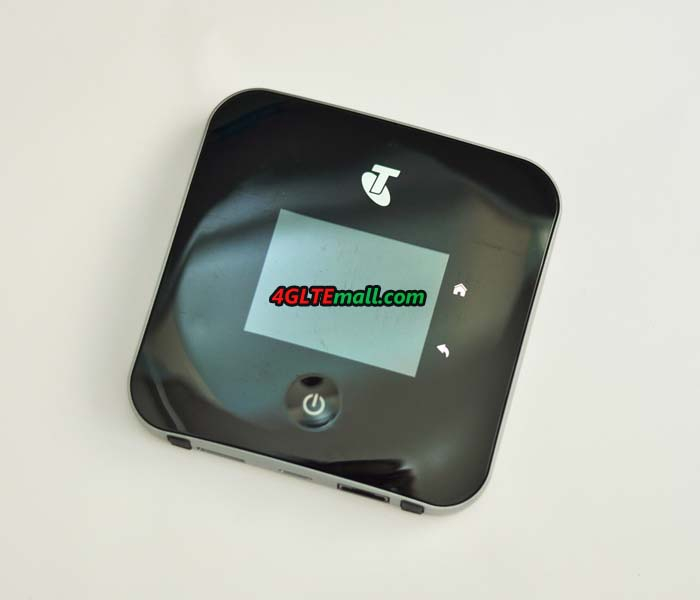 In practice, there are hardly any 4G networks supporting such high data transfer rates. Is still worth the purchase of the mobile hotspot, which is not a bargain with a purchase? We had the opportunity to put the heavy square device to a thorough test.
In practice, there are hardly any 4G networks supporting such high data transfer rates. Is still worth the purchase of the mobile hotspot, which is not a bargain with a purchase? We had the opportunity to put the heavy square device to a thorough test. 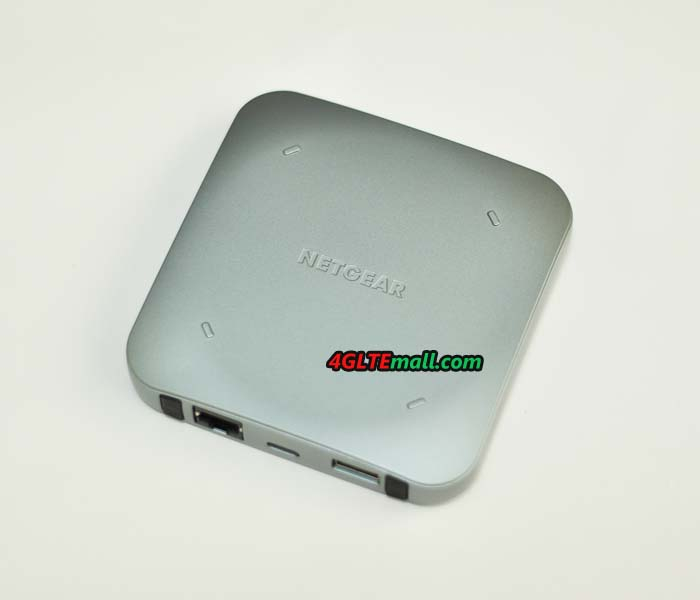 The Netgear Nighthawk M2 mobile router comes in a convenient package. In addition to the router itself, there is the battery and a quick start guide with the power supply and connecting cable. The supplied battery has a capacity of 5040 mAh. The WLAN standards 802.11a, b and g are supported. The 4G mobile hotspot is working on 2.4 and 5 GHz. The Netgear M2 has a USB-A and USB-C as well as an Ethernet interface. There are also connection options for external antennas (Buy Netgear Nighthawk M2 External Antenna). The LAN port can be used to use a wired Internet access instead of the mobile modem and to redistribute it via WLAN.
The Netgear Nighthawk M2 mobile router comes in a convenient package. In addition to the router itself, there is the battery and a quick start guide with the power supply and connecting cable. The supplied battery has a capacity of 5040 mAh. The WLAN standards 802.11a, b and g are supported. The 4G mobile hotspot is working on 2.4 and 5 GHz. The Netgear M2 has a USB-A and USB-C as well as an Ethernet interface. There are also connection options for external antennas (Buy Netgear Nighthawk M2 External Antenna). The LAN port can be used to use a wired Internet access instead of the mobile modem and to redistribute it via WLAN. 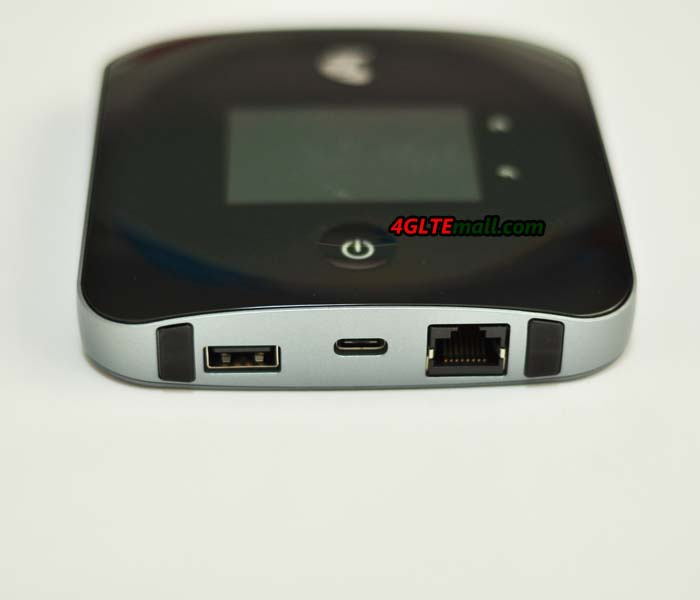
Good workmanship and shiny surface
The processing of the Netgear 4G mobile router is impeccable. You can argue about the shiny surface. Here you can see very clear fingerprints very quickly, especially since the Nighthawk M2 has a touch screen, so it regularly gets into the embarrassment of touching the display. The complete initial setup can also be made via the touch-sensitive screen. A separate app or the web-based access to the M2 pocket WiFi router menu is possible, but not mandatory. 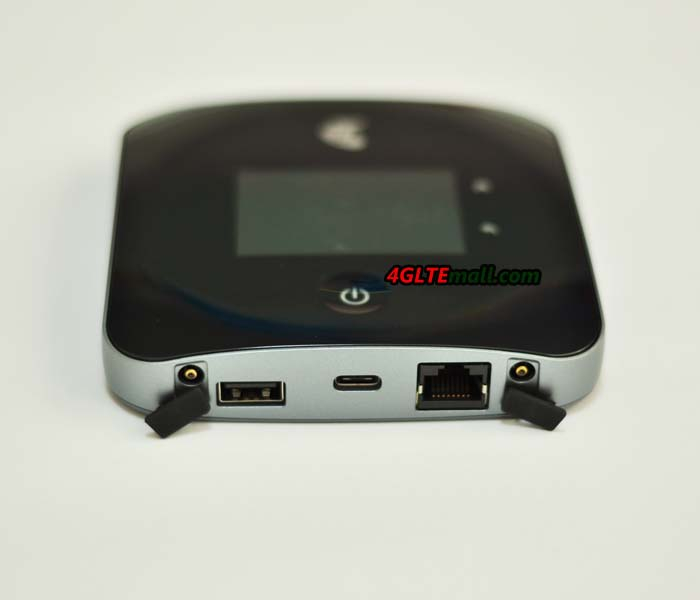 We have set up the router right on the touchscreen made, which was not easy. For one thing, the virtual keyboard is quite small due to the display size. So you always catch the wrong letter when typing. In addition, the screen does not respond as well to inputs as used by higher quality smartphones. If the setup of a network identifier (SSID) and the associated password worked quite well, then setting a (somewhat complicated) administrator password was not possible on the second attempt, so we skipped this step and later have made on the configuration via the Netgear Mobile App.
We have set up the router right on the touchscreen made, which was not easy. For one thing, the virtual keyboard is quite small due to the display size. So you always catch the wrong letter when typing. In addition, the screen does not respond as well to inputs as used by higher quality smartphones. If the setup of a network identifier (SSID) and the associated password worked quite well, then setting a (somewhat complicated) administrator password was not possible on the second attempt, so we skipped this step and later have made on the configuration via the Netgear Mobile App. 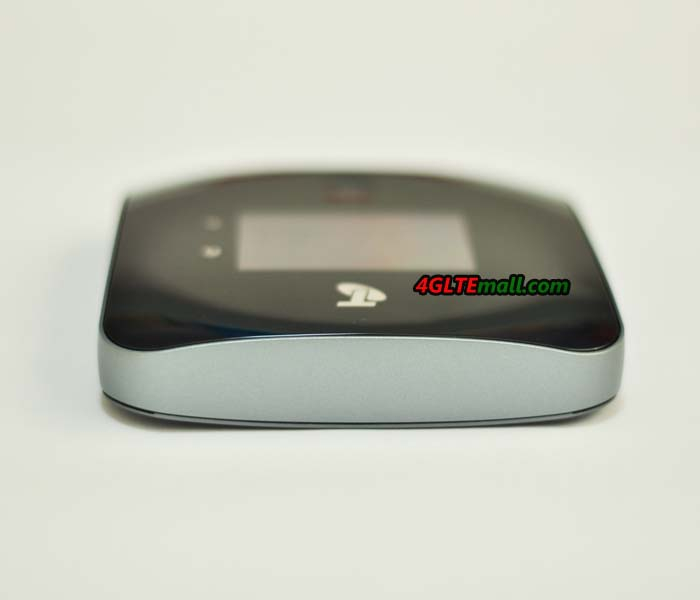 After the initial setup, the Netgear Nighthawk M2 mobile hotspot was immediately ready for use. The configuration for SIM cards is made automatically. As soon as the MiFi was set up, the availability of a firmware update was already displayed. We have installed this over the existing LTE data connection. In the process, around 160 MB of data was transferred. What changes the update brings is unknown. The internet connection via the Netgear Nighthawk M2 was very stable in the test for several hours. It did not matter if we used an Apple iPhone XS Max, a Samsung Galaxy S10+ or an Apple MacBook Pro.
After the initial setup, the Netgear Nighthawk M2 mobile hotspot was immediately ready for use. The configuration for SIM cards is made automatically. As soon as the MiFi was set up, the availability of a firmware update was already displayed. We have installed this over the existing LTE data connection. In the process, around 160 MB of data was transferred. What changes the update brings is unknown. The internet connection via the Netgear Nighthawk M2 was very stable in the test for several hours. It did not matter if we used an Apple iPhone XS Max, a Samsung Galaxy S10+ or an Apple MacBook Pro. 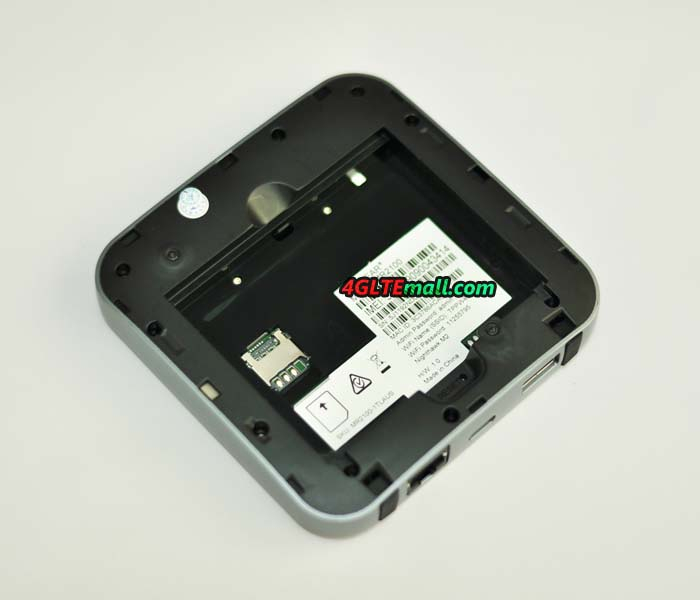 The display of the router shows the current data consumption, the ID of the SIM card provider and the network technology used. There is also a small S-meter, which provides information about the quality of mobile reception. The battery level is also displayed. By default, you can also find the names of the Wi-Fi hotspot and the password via the touchscreen. This display can be deactivated if desired. Numerous settings are possible via the touchscreen menu. First, there is a WPS function. Then the user can limit the hotspot to one of the two WLAN frequency ranges (2.4 or 5 GHz). The connected devices can be displayed and, for example, you can specify whether the hotspot is put into standby mode after a period of non-use to save battery capacity.
The display of the router shows the current data consumption, the ID of the SIM card provider and the network technology used. There is also a small S-meter, which provides information about the quality of mobile reception. The battery level is also displayed. By default, you can also find the names of the Wi-Fi hotspot and the password via the touchscreen. This display can be deactivated if desired. Numerous settings are possible via the touchscreen menu. First, there is a WPS function. Then the user can limit the hotspot to one of the two WLAN frequency ranges (2.4 or 5 GHz). The connected devices can be displayed and, for example, you can specify whether the hotspot is put into standby mode after a period of non-use to save battery capacity. 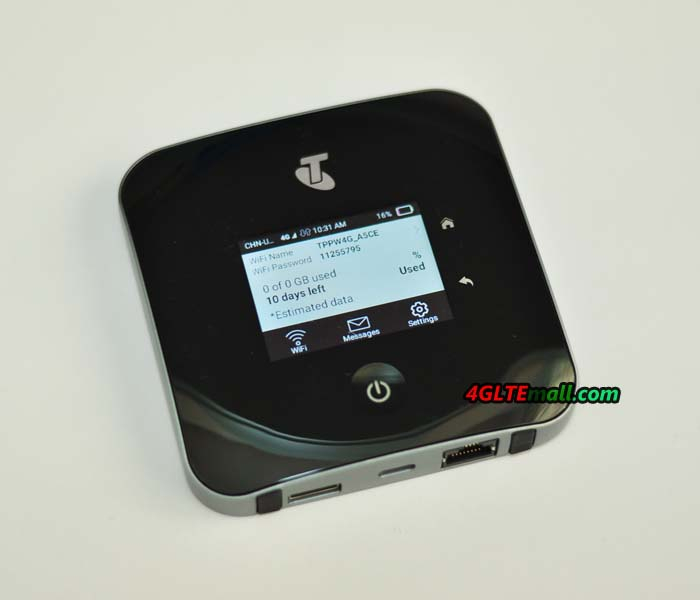
Other features
Other possibilities are the restriction of Wi-Fi hotspots to a smaller reception area in order to save battery capacity or the automatic WLAN detach when USB tethering is used. The brightness of the display can be adjusted and the user can decide whether he wants to use the Internet access only in the home network or in international roaming. SMS messages can be sent and received via the Netgear Nighthawk M2. As we have already mentioned regarding the initial setup: The touch screen does not always respond reliably to inputs and the virtual keyboard is quite small. Apart from that, the menu is functional and intuitive to use. 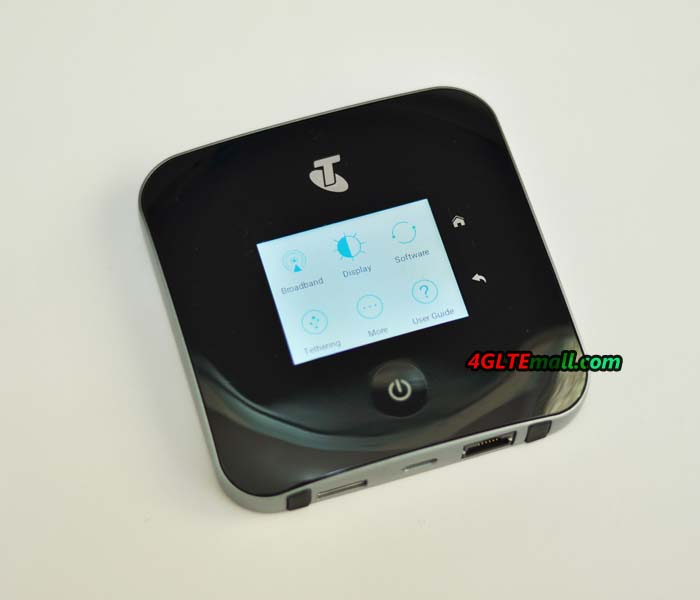
Good performance even in mobile operation
With a SIM card from Vodafone, we have achieved data transfer rates of up to 110 Mbps in the downstream and 61 Mbps in the upstream. This is far from the peak speeds that the Netgear Nighthawk M2 allows, but is more or less equivalent to what the mobile telecom Internet access does with the smartphone. Even in mobile mode, such as a Wi-Fi hotspot in the car, the router performed well in the test. At speed 120Mbps on the highway, the performance of Internet access was still fine. Compared to a WLAN adapter such as the Huawei E8377 CarFi, the Netgear device earns more scores by the possibility to connect an outdoor LTE antenna. In regions with bad LTE coverage, a magnetic base antenna on the car roof provides a significant improvement in reception, which also affects the performance of Internet access.
Conclusion: Good hotspot with slight weaknesses
Although Netgear Nighthawk M2 is well-made and provides stable Internet access for up to 20 devices, flaws such as the only moderately good touchscreen provides bad experience for users. For almost half of the purchase price, the Netgear Nighthawk M1 is available, which supports data transfer rates of up to 1 GBit/s via LTE, more than what the nets usually give out, so this model offers the much better price/performance ratio.
Vodafone GigaCube 5G – Vodafone First 5G Router
Two months ago, Vodafone released its first wireless router that is compatible with the new mobile communications standard 5G. The new 5G wireless router converts the mobile Internet access into a WLAN hotspot, so that several smartphones, tablets and notebooks can connect with an Internet access. Like the predecessors Vodafone GigaCube and Gigacube Cat19, the manufacturer of the 5G router is also Huawei. The model is officially called Huawei 5G CPE Pro but for Vodafone under the name Vodafone GigaCube 5G.
According to Vodafone official sayings, data transmission rates of up to 2Gbps could be achieved in the 5G mobile network. This concerns the LTE access, over which most customers will initially be predominantly online, especially as 5G availability is still severely limited. The network operator does not reveal how fast users can surf via 5G. A footnote simply states that you can "surf faster" in the first 5G radio cells. Within the home network scores the bolide by using the WiFi-6 technology. This achieves data transfer rates of up to 4.8 GBit/s.
At the heart of the Vodafone GigaCube 5G is the Balong 5000 chipset, which is also used in the Huawei Mate 20 X 5G as a multi-mode modem. If the 5G network is not available, customers can also use the LTE, UMTS and GSM network for Internet access with the Vodafone 5G router.
Vodafone offers the 5G router along with the well-known GigaCube tariffs. “With speeds reaching up to 1Gbps,” said Vodafone at launch, “customers are able to access super-fast speeds and reliable Wi-Fi quickly. GigaCube is ideal for those waiting for their home or business broadband, who need a connection for a second home or who have a home office.”
It added: “The GigaCube can connect up to 64 devices at any one time and has a wifi range of 90 meters. Thanks to the low latency of 5G, this solution is perfect for small businesses who have multiple employees streaming or downloading at the same time. It is also particularly useful for businesses that don’t have a fixed location, or students and house shares.”
Here you can see the general Vodafone 5G GigaCube Specs:
- Network:5G/LTE
- Chipset: HiSilicon Balong 5000
- Wi-Fi:11 a/b/g/n/ac/ax; 802.11 n22*2 MIMO for 2.4GHz and 02.11ax4*4MIMO for 5GHz
- Ethernet Ports:2 x GE LAN (inc. 1 LAN/WAN)
- Memory:4GB NANDFlash/8GB DDR4
- External antenna port:2 x Ext. antenna ports (TS-9)(Buy Vodafone GigaCube 5G External Antenna)
- SIM port:1 x NANO USIM card slot
- Device model:Huawei 5G CPE Pro (H112-370)
- Dimensions:99mm x 107mm x 215mm
You can also check the Vodafone GigaCube 5G Router Review here: https://www.4gltemall.com/blog/vodafone-gigacube-5g-router-h112-370-review/
HTC 5G Hub Review
HTC was one of the first manufacturers to introduce a 5G router at MWC 2019, which was launched in the second quarter of 2019. It uses the new 5G mobile communication standard for fast data transmission and is primarily suitable for home use, but can also be used on the go. One of the main features on the front of the device is a large display. In addition, the HTC 5G hub will later support a cloud VR mode, in which a local player can be omitted.
HTC 5G Hub Specs and Features | |
| Manufacturer and device name | HTC 5G hub |
| Supported mobile standards | 4G, 5G |
| 5G network modes | Non standalone(NSA) |
| chipset | Qualcomm Snapdragon 855 Octa-Core with Snapdragon X50 5G modem |
| Maximum 5G data rate | 2.63Gbps Down & 287Mbps Up |
| LTE frequencies | Bands 2, 3, 4, 5, 7, 8, 12, 13, 25, 26, 66, 71 |
| mmWave frequencies | between 26 and 28 GHz |
| Sub 6 GHz frequencies | Yes, 5G bands n41, n78 |
| 5G external antenna can be connected | No |
Network Feature (LAN & WiFi) | |
| WLAN standards | 802.11 a/b/g/n/ac/ax |
| Maximum gross data rate with WLAN | HTC did not provide any information |
| Supported WLAN bands | 2.4GHz, 5GHz and 60 GHz |
| WLAN guest access can be installed | ? |
| WLAN encryption standards | WPA, WPA2, WPS |
| Gigabit LAN | yes, 1 port Gigabit Ethernet |
| WAN port | No |
Telephone | |
| Telephone function | No |
Display | |
| Size & resolution | 5 inches, HD (720 x 1280 pixels) |
| Touch capable | Yes |
Other features | |
| IPv6 support; Dual stack | ?? |
| suitable for IPTV | Yes |
| Can be used as a media server | yes (microSD up to 512 GB) |
| USB ports on the back | No |
| Battery for self-sufficient operation | yes (7,660 mAh) |
| Dimension and weight | 129mm x 100mm x 43mm at 340g |
More information | |
| Datasheet for download (PDF) | " not yet available |
| Manual for download (PDF) | » Available at HTC official site |
| Available at | » https://www.4gltemall.com/ |
High data transfer rates
Inside the HTC 5G Hub is a Snapdragon 855 Octa-core chipset, a CPU with Octa-core, which is installed in the latest 5G smartphones like the ZTE Axon 10 PRO 5G phone. With the Snapdragon X50 5G modem, the HTC 5G router supports maximum data transfer rates of 2.63 Gbps in the download and up to 287 Mbps in the upload. If no 5G connection prevails, the device can also switch to and work on 4G network. A fallback to older technology such as 3G or 2G can’t be done in the HTC 5G Hub.
Nevertheless, a mobile application is possible. In addition to power from a power outlet, the HTC 5G router also has a built-in battery. The capacity of 7,260 mAh should provide enough energy for a whole day. The battery is charged either with the enclosed power supply, via USB Power Delivery on the 9 Volt rail or with Quick Charge 3.0 via USB.
WLAN for up to 20 devices
If the HTC 5G Hub has established a connection to the 5G network, it distributes the signal via WLAN in its environment. Not only the usual IEEE 802.11a/b/g/n/ac standards are used, but also 802.11ax (WiFi 6). This means that the HTC 5G Hub can span not only the familiar 2.4 and 5 GHz frequencies but also a 60 GHz WLAN. However, only a few devices support this new standard so far. Wifi at 60 GHz has very high data transfer rates between the 5G WLAN router and the terminal, provided that there are no obstacles such as walls in the way.
However, the number of maximum connector users is limited. A maximum of 20 clients can connect to the HTC 5G Hub via Wi-Fi. There are four high-speed connections via 802.11ax. This limit can be quickly exceeded today in a household with various technical devices. Other Wifi access points usually support more connections, ie 32 to 64.
Integrated display and speakers
Visually, the HTC 5G Hub is more like a Google smart home hub rather than a traditional router. This is mainly due to the integrated touchscreen on the front of the device. This measures 5 inches and displays the contents in HD resolution with 720 x 1,280 pixels. In addition, two speakers for stereo sound and a microphone that pays constant attention to voice commands, are integrated.
The HTC 5G Hub is in the dimensions of 12.9 x 10 x 4.3 cm and weights 340 g and provides 4 GB of RAM and 32 GB of memory. If the internal memory space is insufficient, it can be expanded via microSD card. What exciting are the possibilities that the HTC 5G Hub can stream content to other devices such as a TV and the use of Cloud VR is also planned. A local player can then be omitted in the presentation of VR content. Instead, the data is streamed via cloud computing. This is made possible by the potentially low latencies of 5G. This requires a compatible 5G network that allows mobile edge computing.
Price and availability
The HTC 5G Hub is available for many network providers over the world. Together with the Tariff, you may get cheaper price. If you only get the single HTC 5G Hub, the price would be much higher.
Huawei Released New 5G Mobile WiFi Hotspot E6878
A few days ago, Huawei also launched the 5G mobile WiFi hotspots in the model number of Huawei E6878, which will be available for 5G networks in China next month in addition to new 5G mobile phone.
As introduced by Huawei, the Huawei 5G moible WiFi is world’s first 5G dual-mode mobile WiFi hotspot. And the series have two models: one is the standard version and the other is Pro version. They got the official name Huawei 5G Mobile WiFi(Model Number: E6878-870) and Huawei 5G mobile WiFi Pro (Model Number: E6878-370). There are two colors for the 5G mobile routers: White and Black.
They are both with built-in Balong 5000 chipset, which can convert 5G signals into high-speed WiFi, allowing non-5G mobile phones, tablets, laptops, etc. to enjoy high speed. They can support 5G NSA/SA dual mode. Type-C connection speed can reaches 1.65Gbp, and WiFi connection peak speed can reach 867Mbps.
The Huawei 5G mobile WiFi has battery capacity of 4000mAh while the Huawei 5G mobile WiFi Pro version is with built-in large capacity battery of 8000mAh, and supports 40W Huawei super fast charge, 22.5W external wired charging and 15W reverse charging.
The Huawei 5G WiFi routers support AI high-speed rail mode, and the communication algorithm integrates AI technology to intelligently predict and switch better signals along the high-speed rail in advance to ensure signal stability. In addition, when the cell phone connects with Huawei 5G mobile WiFi hotspot, and the mobile phone game mode can be automatically turned on during the game, which significantly reduces the delay of the mobile game up to 30%.
The two Huawei 5G Mobile WiFi hotspots supports 4K 60FPS HD live broadcast, supports multi-channel upload aggregation technology, and 2-3 Huawei 5G mobile WiFi overlays, enjoying faster upload speed.
Huawei 5G mobile WiFi routers support cross-operating system transfer large files without loss and zero data consumption. Whether it is a mobile phone, a tablet or a laptop, it can be mutually transmitted under the same LAN.
To connect with the Huawei 5G mobile WiFi, it does not require a password, so you can go online. Scan the QR code generated on the screen in real time to quickly connect to Huawei 5G WiFi hotspots.
Finally, Huawei also pointed out that the 5G mobile WiFi hotspots can support mainstream 5G and 4G networks in 150+ countries or regions around the world. So it would be a global 5G pocket WiFi router for worldwide use. Unfortunately, Huawei only said that 5G MiFis will be available in December, but the price has not been announced.
Sourcing from https://www.4gltemall.com/blog/huawei-released-new-5g-mobile-wifi-hotspot-e6878/
Alcatel EE70 LTE Cat7 Mobile WiFi Router Review
Alcatel EE70 is a high-quality pocket 4G/3G WiFi router, primarily designed to work in the network of mobile operators Vodafone, Kyivstar and Lifecell for Ukraine, or other operators around the world. Full support for working in 4G/3G networks, at a maximum data transfer rate of up to 300 Mbps using 4G LTE technology and 43.2 Mbps using HSPA/HSPA+ technology. For work, it is necessary to install a SIM card of any GSM operator in the router, an Internet connection will automatically occur, without additional settings. It’s suitable for home use, trips or foreign travel, as well as for use in the countryside as a home access point.
Design and Management
The 4G Alcatel EE70 router is small, compact, lightweight, fits in your trouser or shirt pocket, and you can take it with you everywhere. The Alcatel EE70 router is made in a yellow-black combined case made of high-quality plastic (in the spirit of the company's latest developments). On the front panel of the case are LED indicators of the device - the signal strength of the cellular network, battery level, WiFi activity and received messages. Settings are managed via the settings web interface. Above is the power button, below are a slot for charging Micro USB format. Under the back cover there is a battery, under it there is a SIM card slot.
Compatibility
The Alcatel 4G Router is very easy to configure and use. You just need to connect it via WiFi to your phone, computer, or laptop, after a few seconds you will be connected to the Internet. OS Support: Windows XP, Vista, 7, 8, 10, Mac OS X, Linux. The Alcatel EE70 model with a 2150 mAh battery can last up to 8 hours without recharging. The device is charged from the 220V network using the power supply that comes with the kit. It is also possible to charge the router from a car charger or from a computer’s USB port.
Additional features
The Alcatel EE70 has a dual-band (2.4 GHz and 5 GHz) Wi-Fi module 802.11 a/b/g/n/ac, which provides a reliable wireless WiFi network within a range of 15 meters, which can connect up to 20 devices at the same time. All types of devices with WiFi module are supported: smartphones, tablets, laptops, set-top boxes, TV, etc.
Below you will see the general specifications of Alcatel EE70 MiFi:
* Frequencies: 2G 850/900/1800/1900MHz || 3G 900/1800/2100MHz || 4G 800/1800/2600MHz
* LTE download speed up to 300Mbps, upload speed to 50Mbps
* WiFi 802.11 a/b/g/n/ac, dual-band (2.4 GHz and 5 GHz)
* Technologies: GSM GPRS / EDGE, UMTS, HSDPA, HSPA, HSPA+, DC-HSPA+, LTE
* WiFi support up to 20 wireless devices
* Removable battery of 2150mAh



